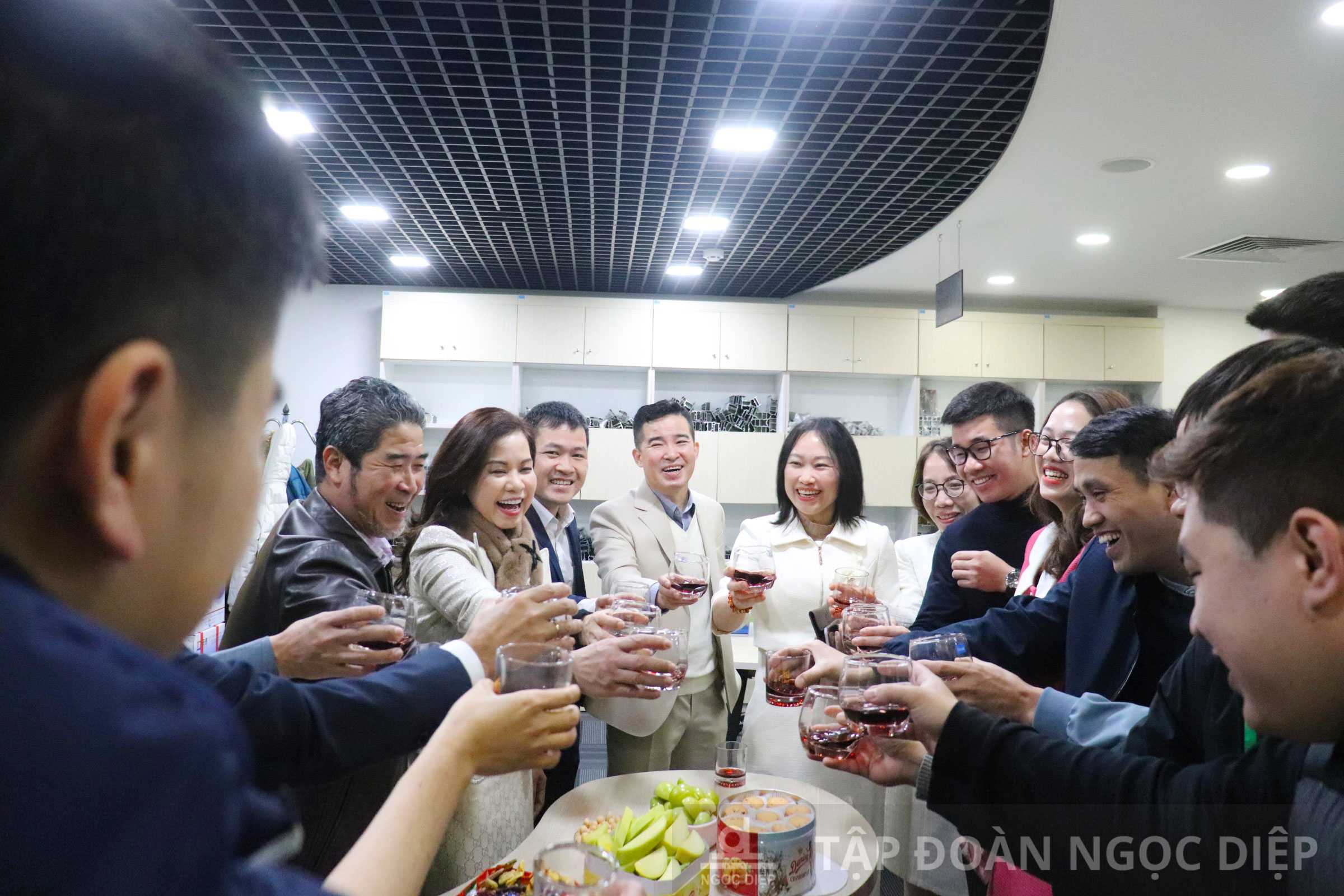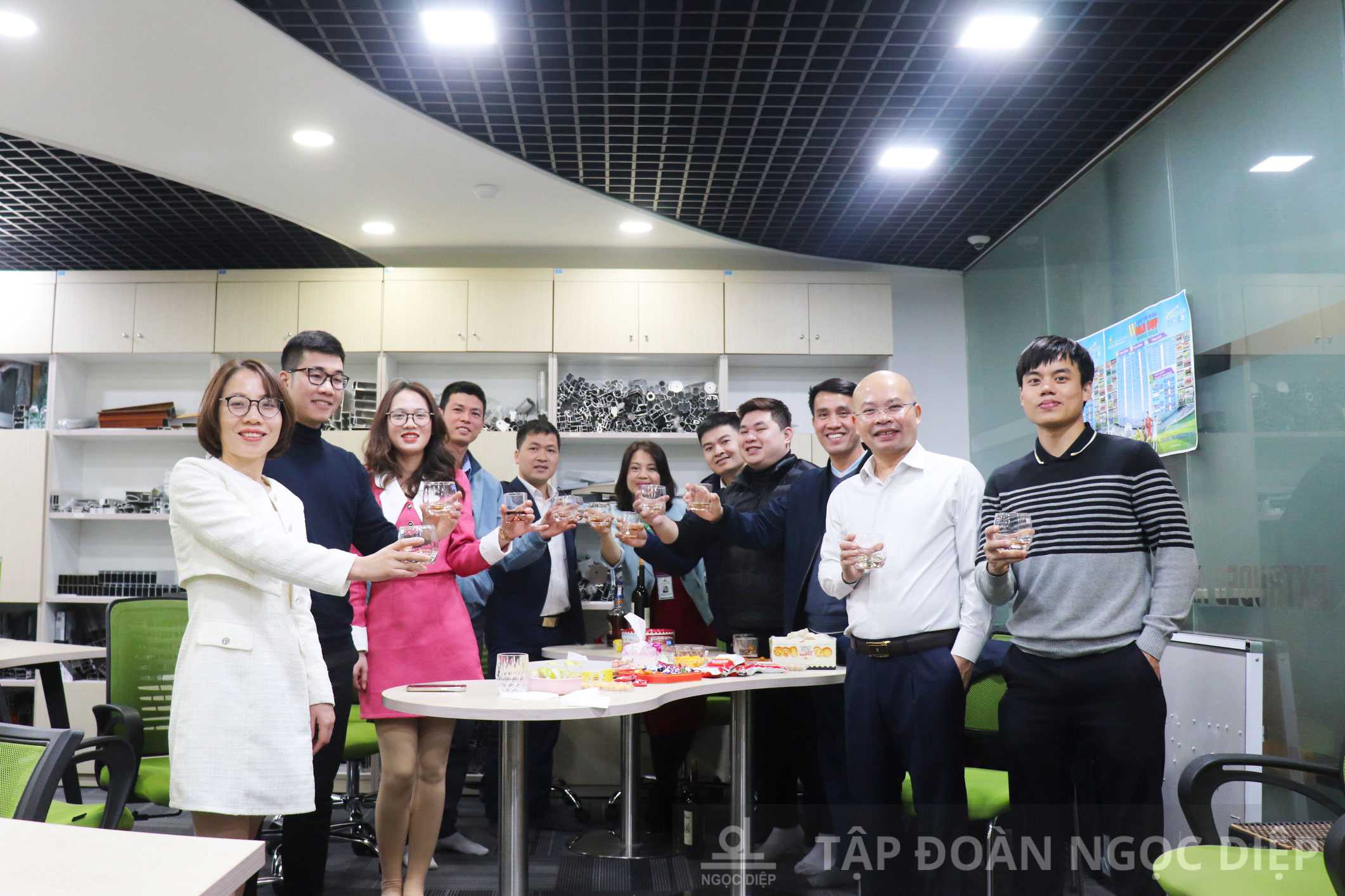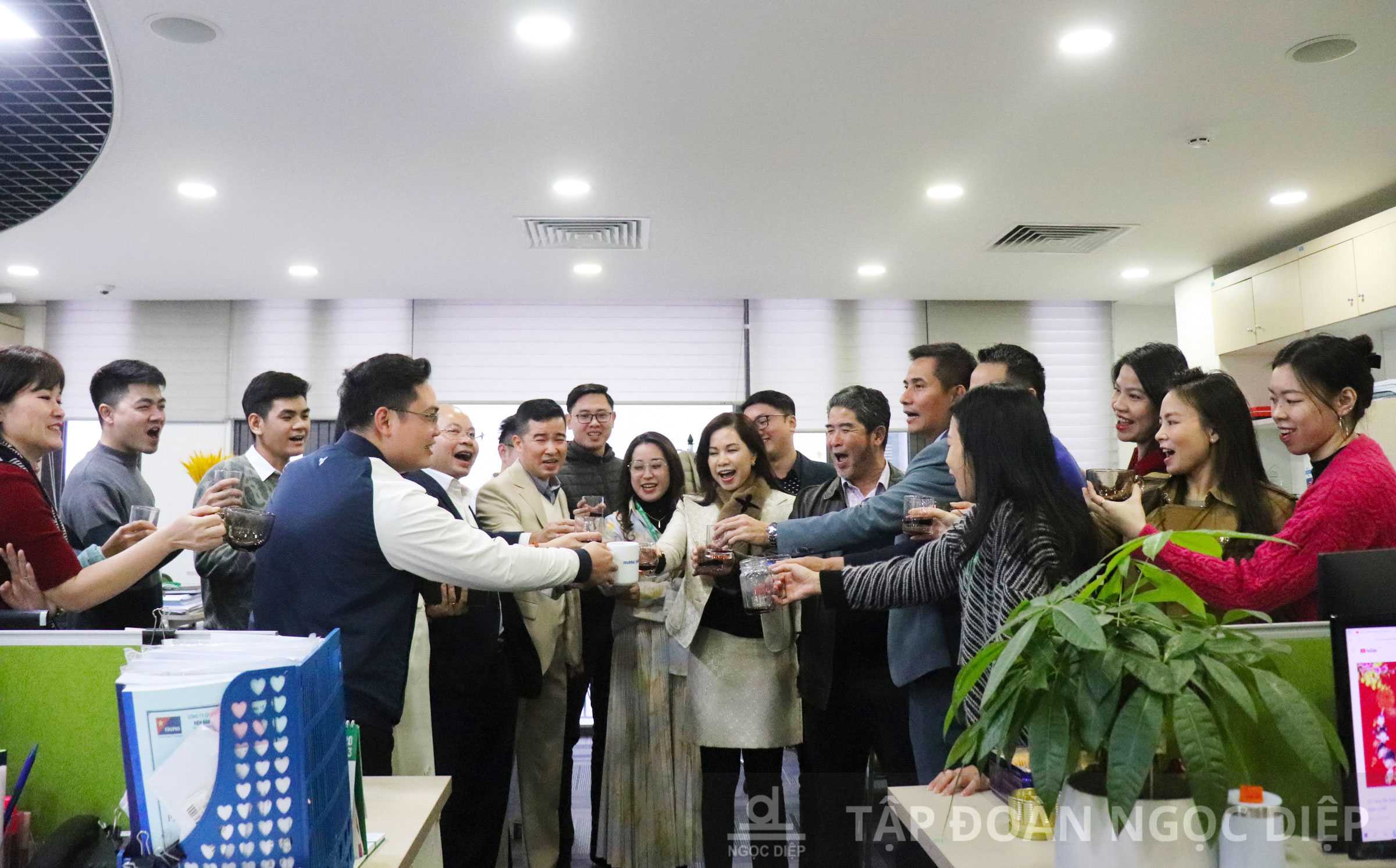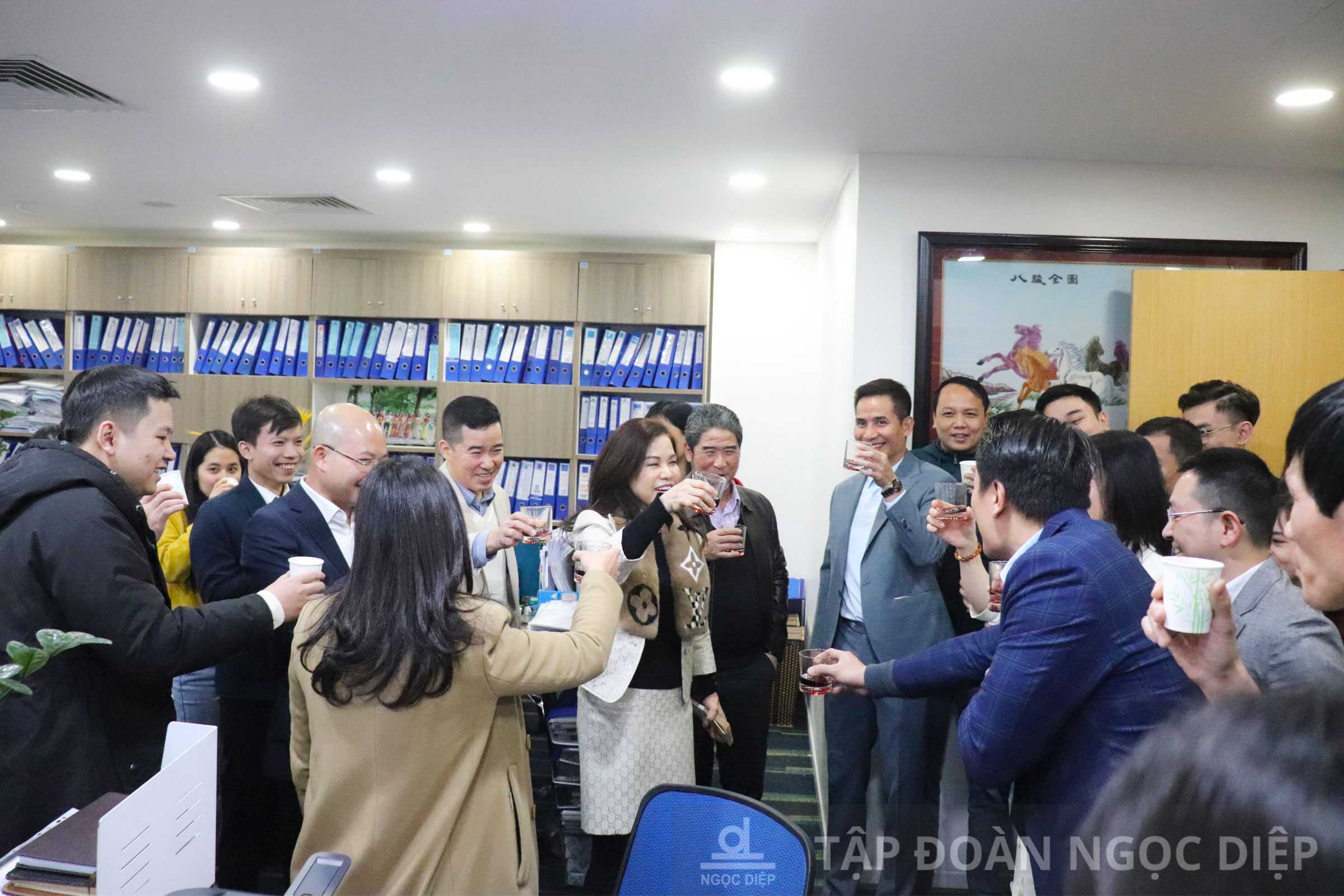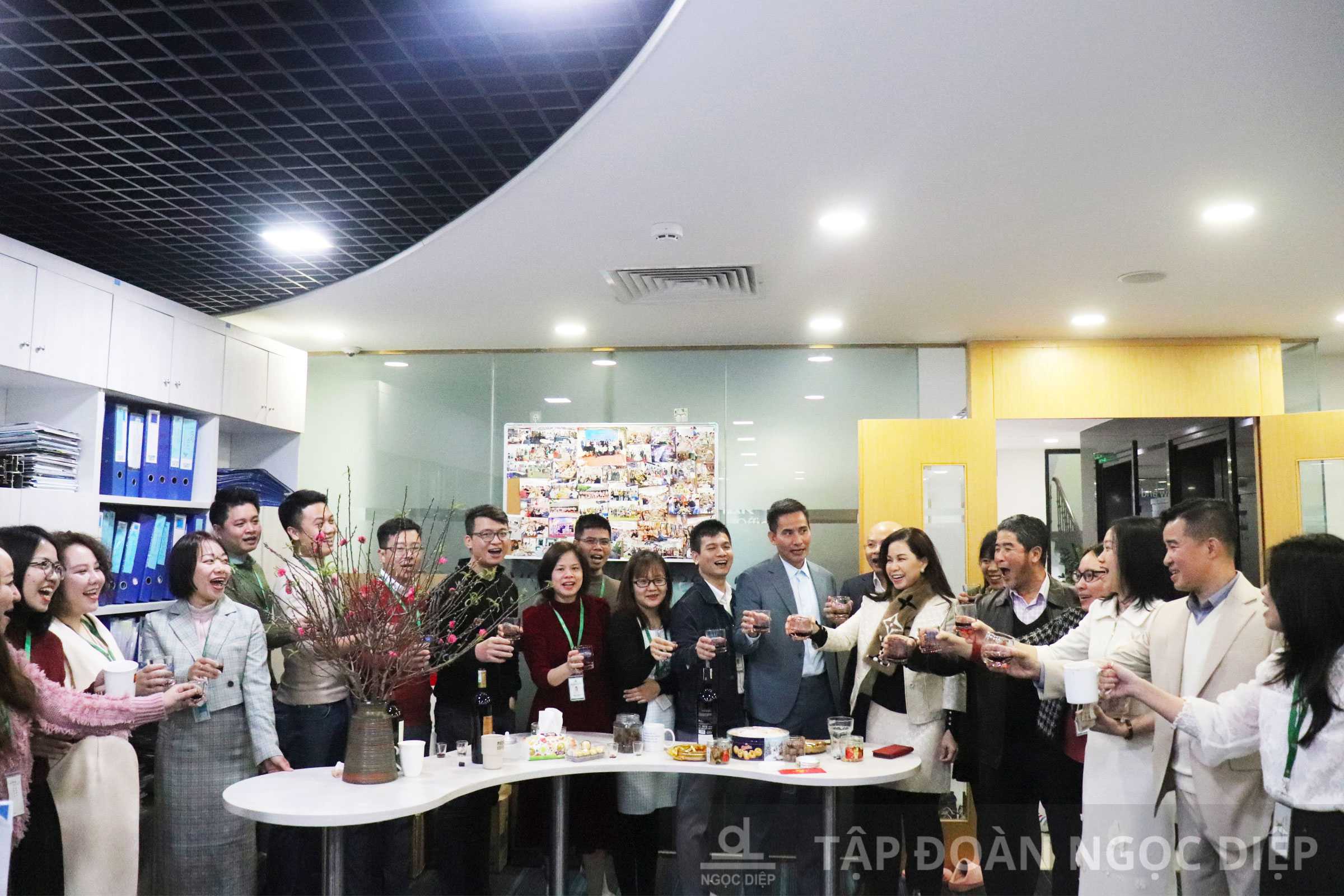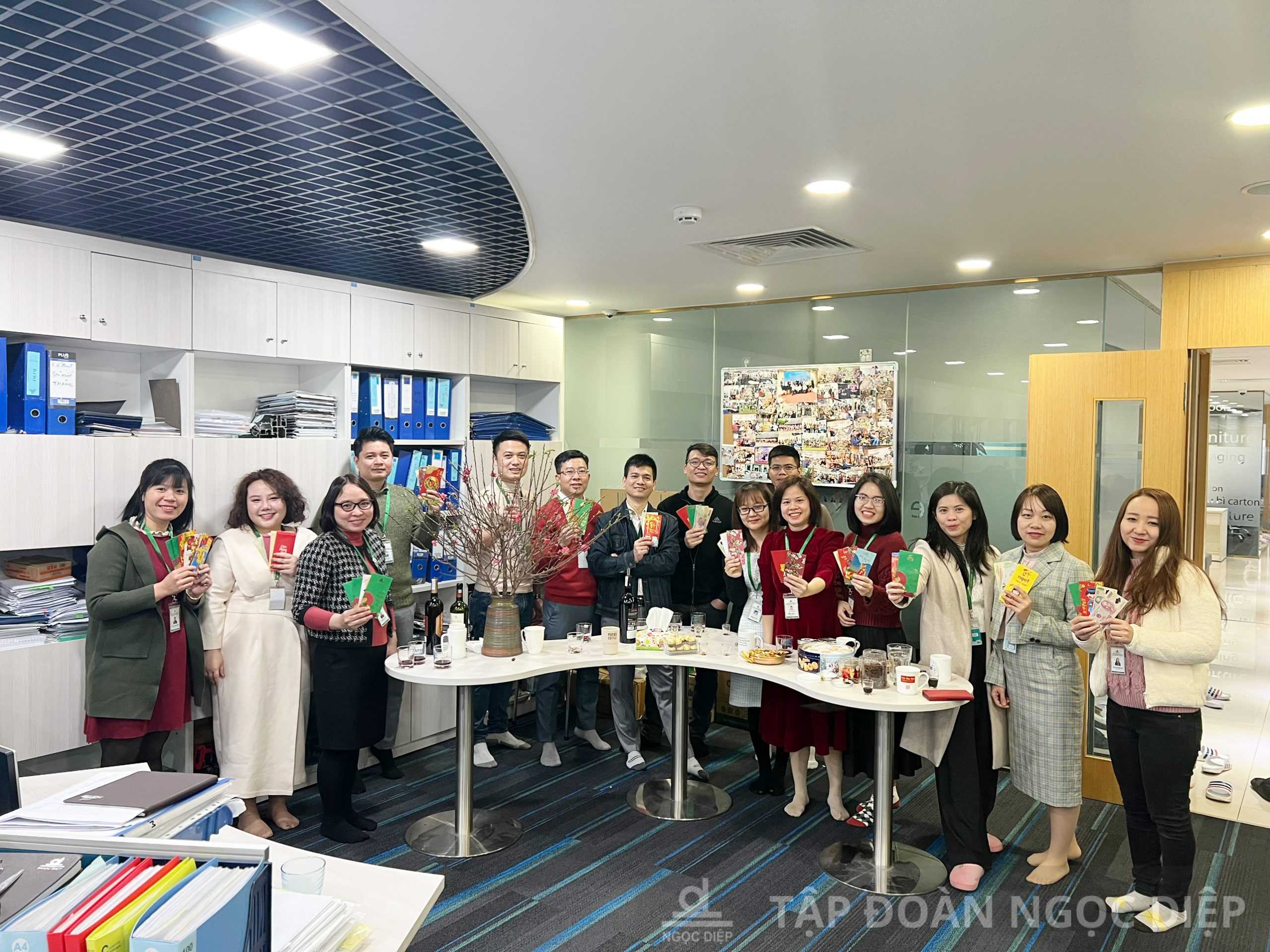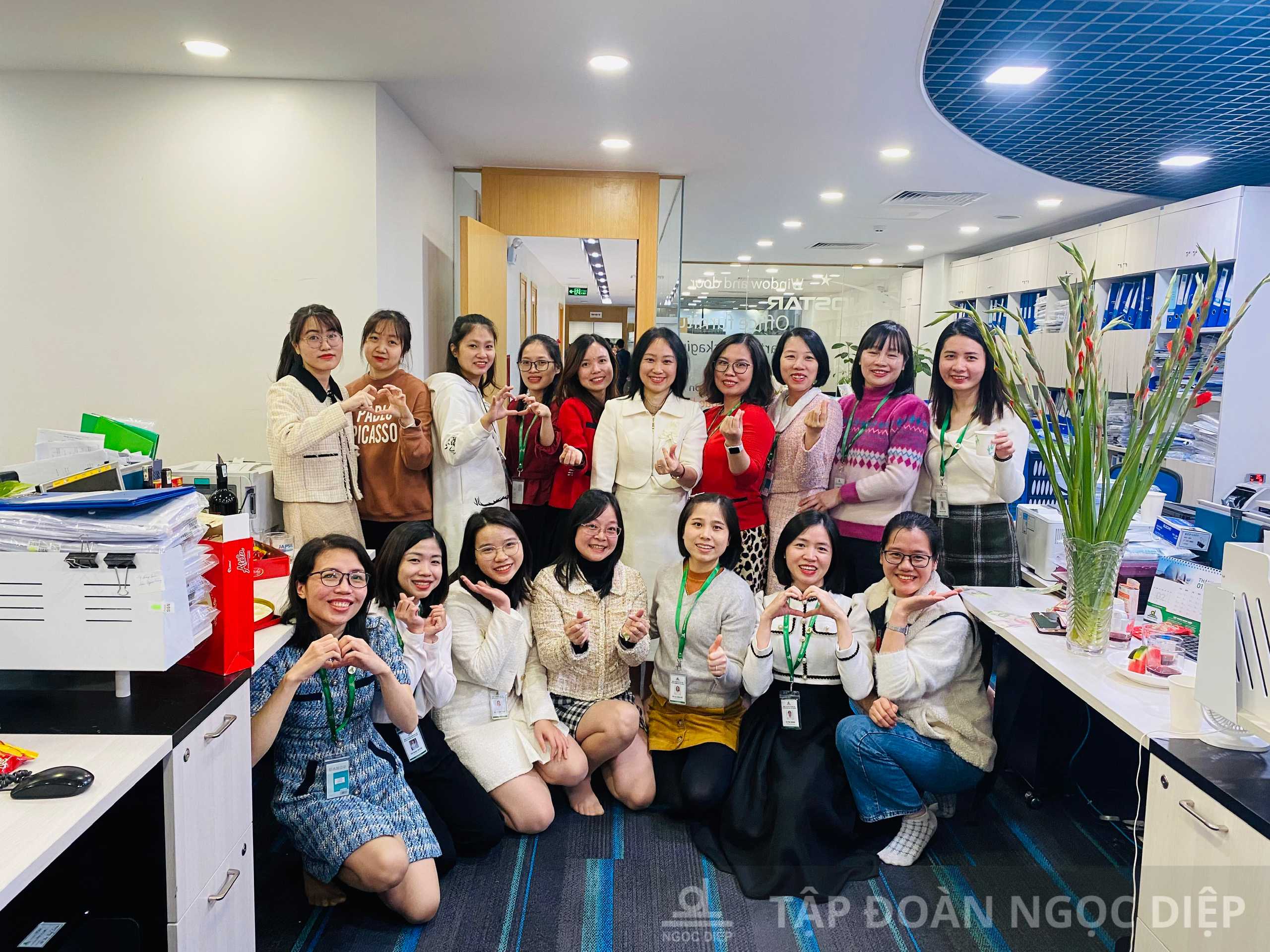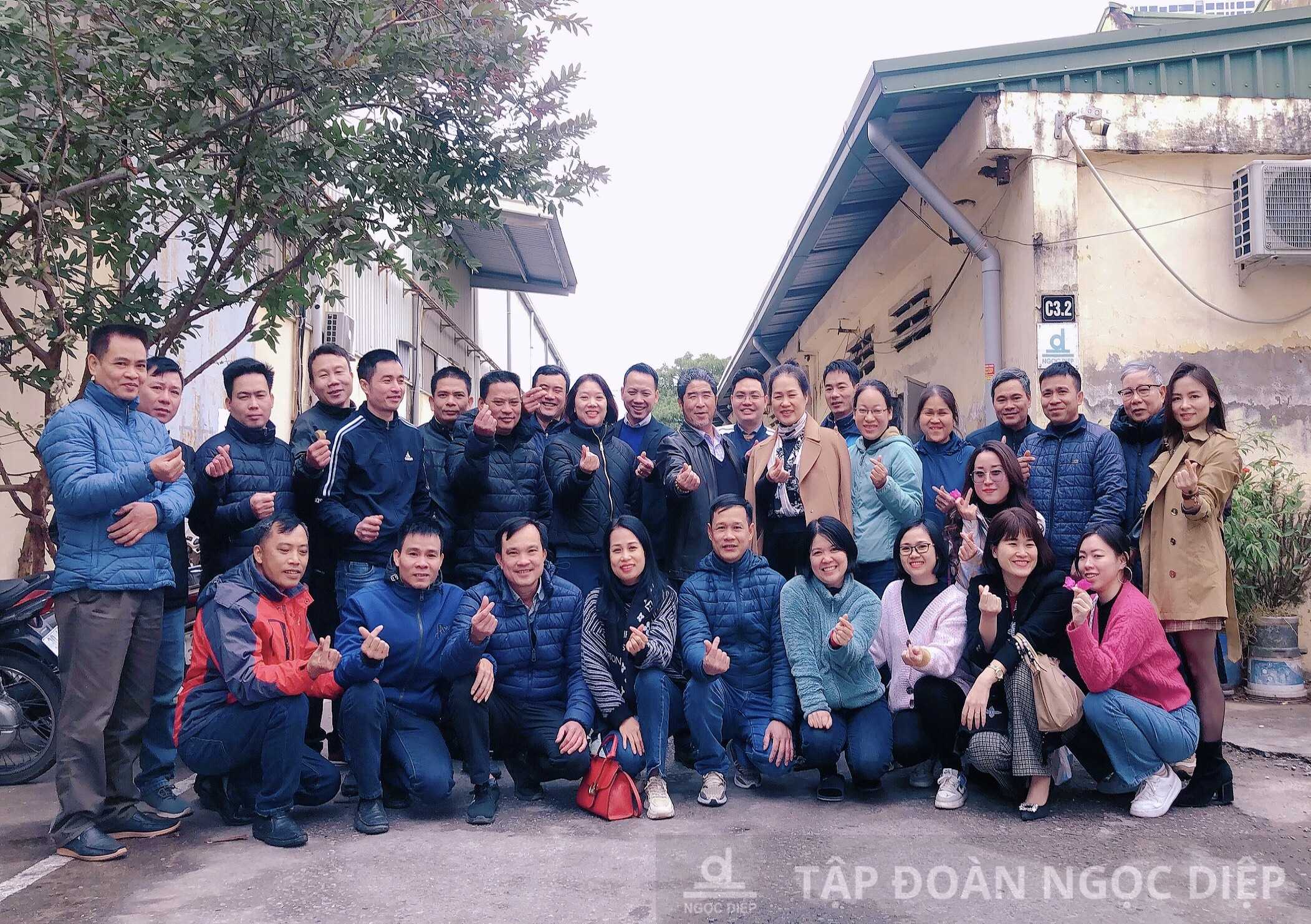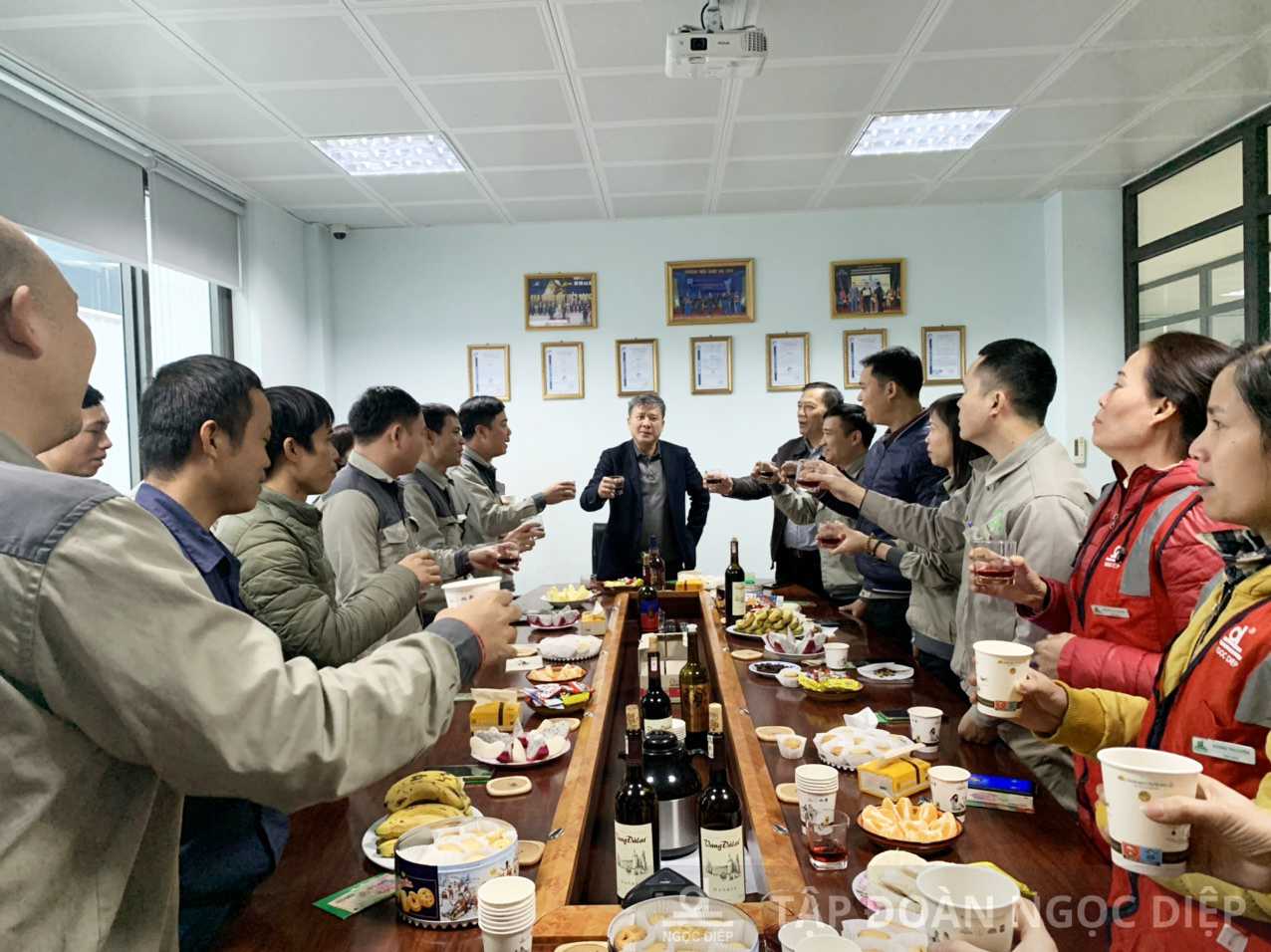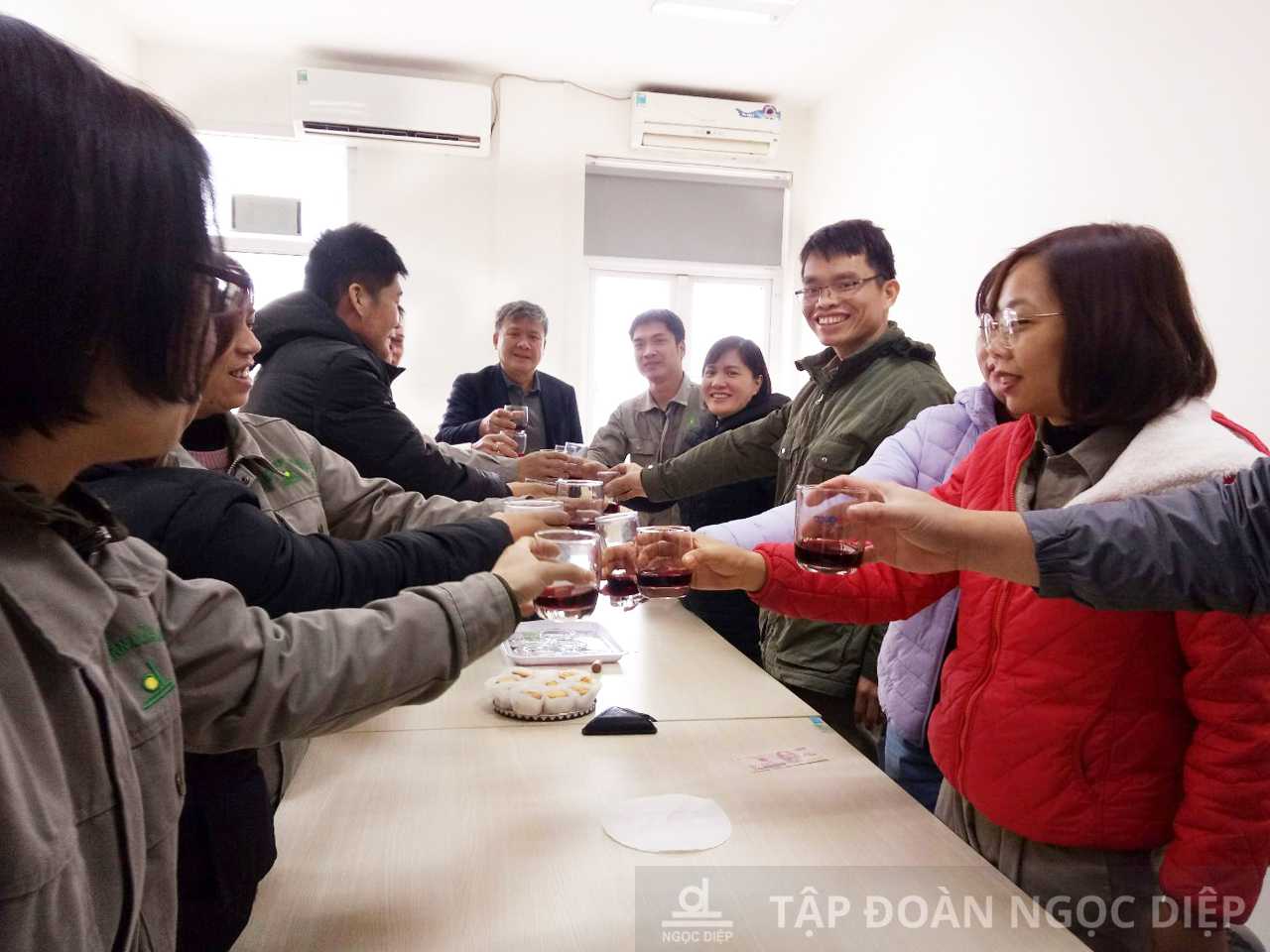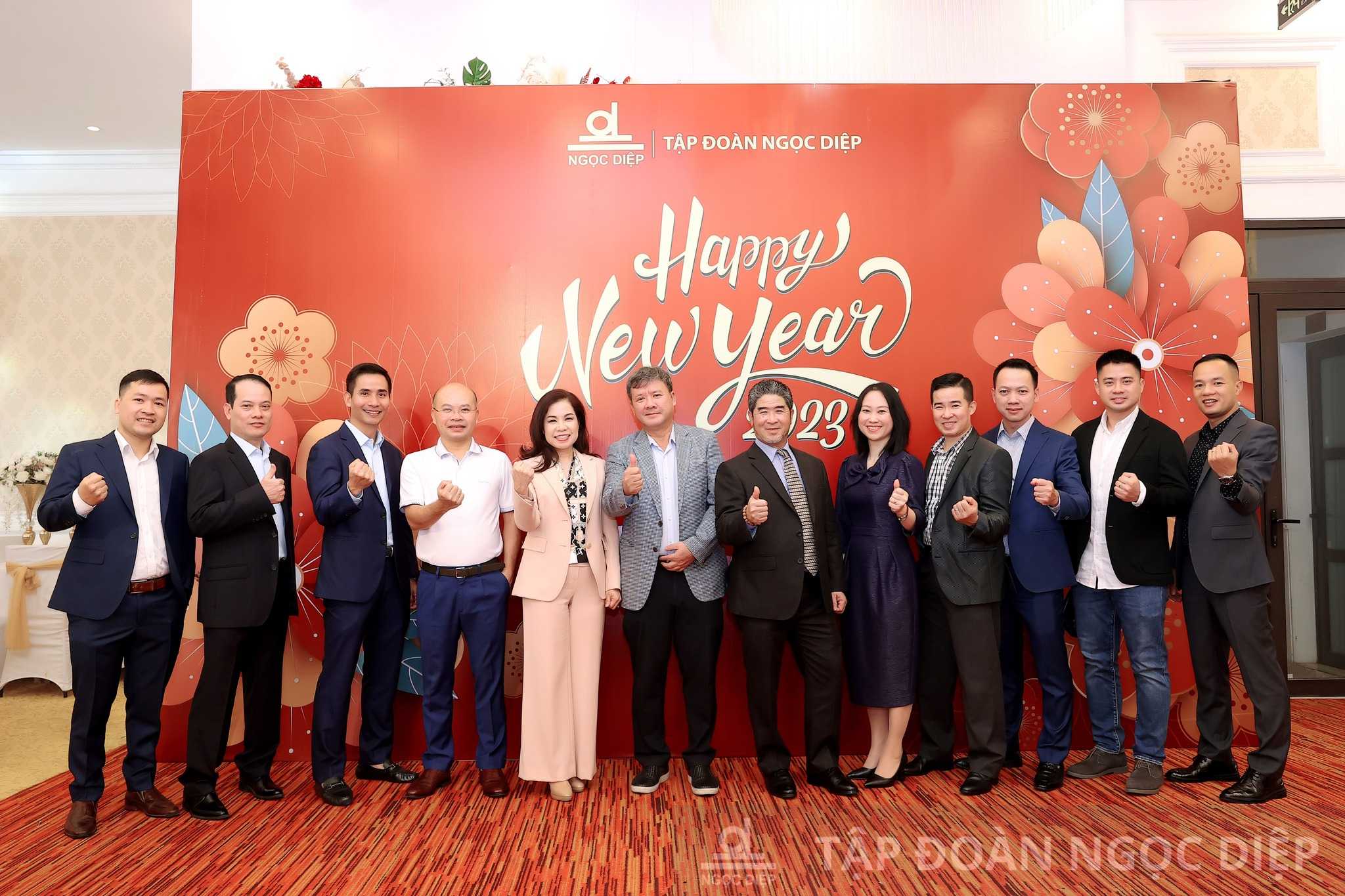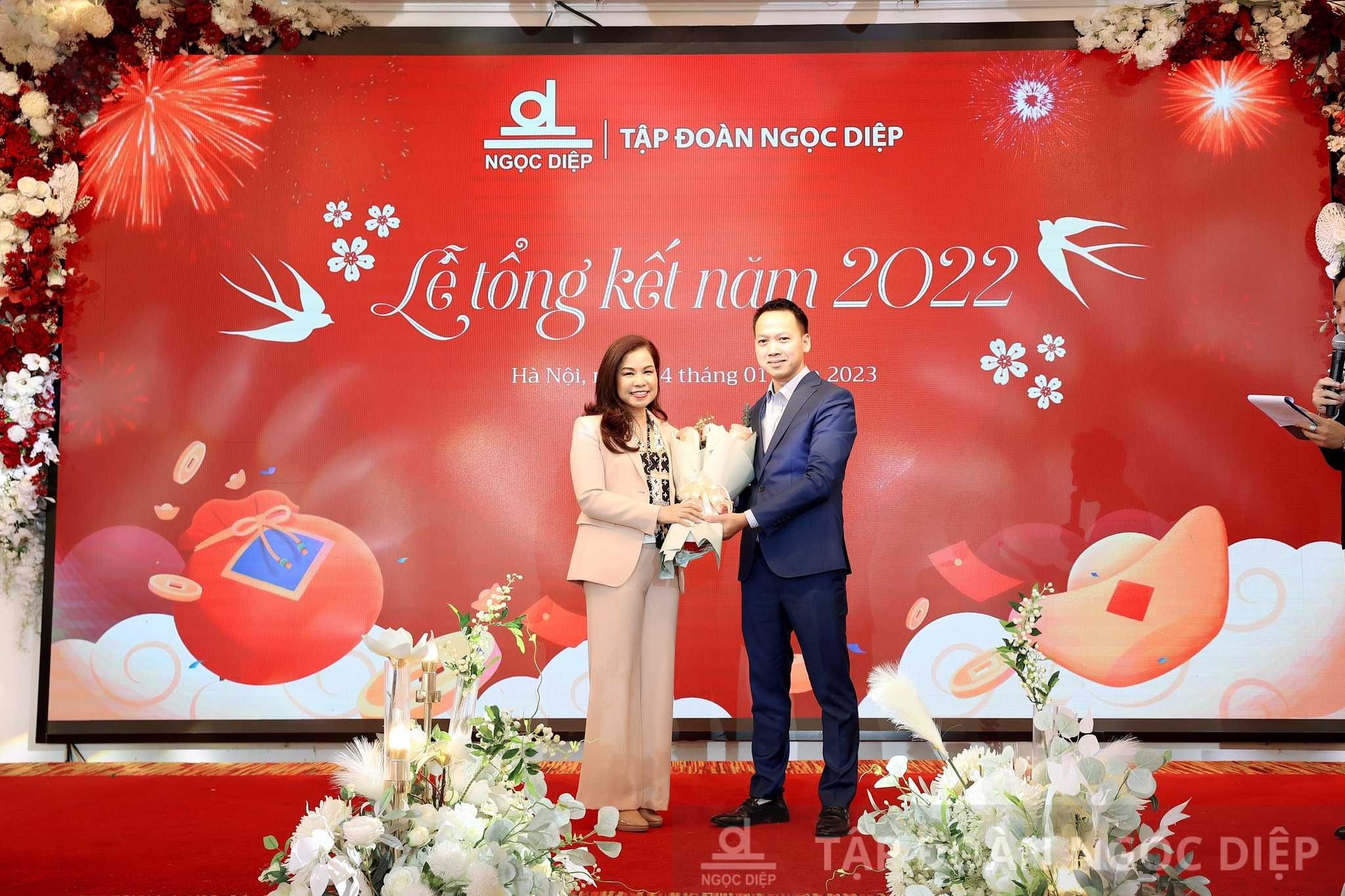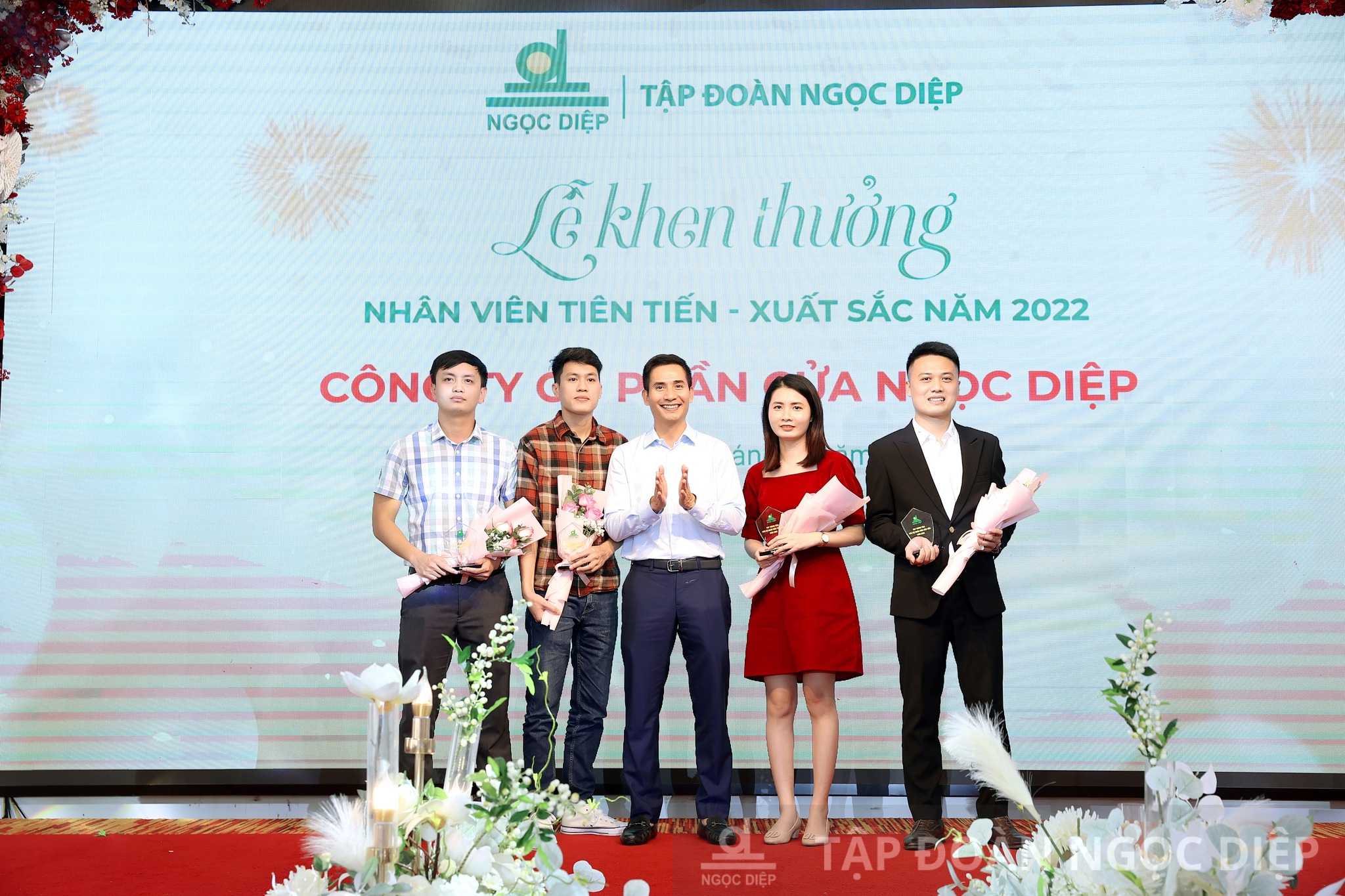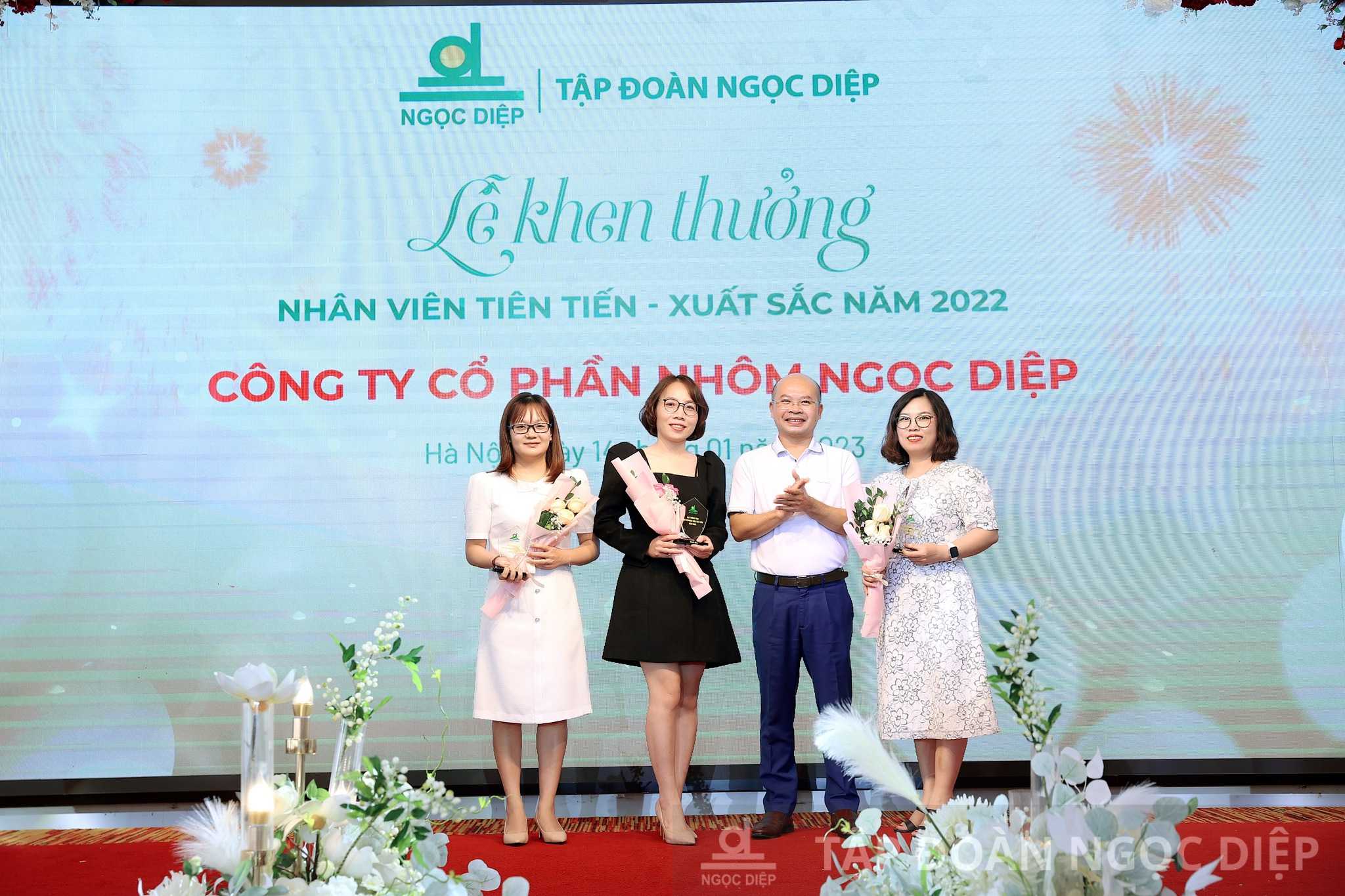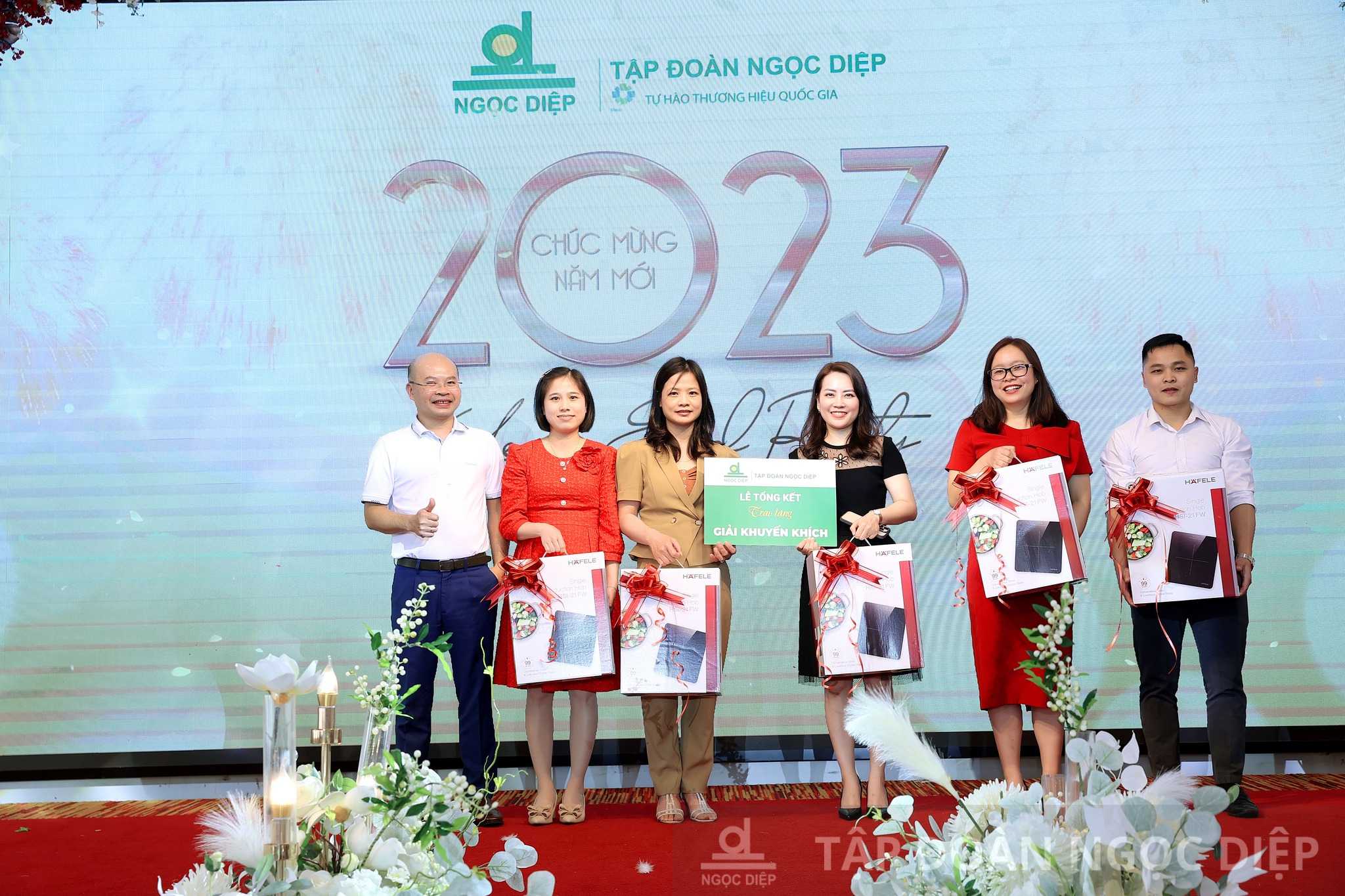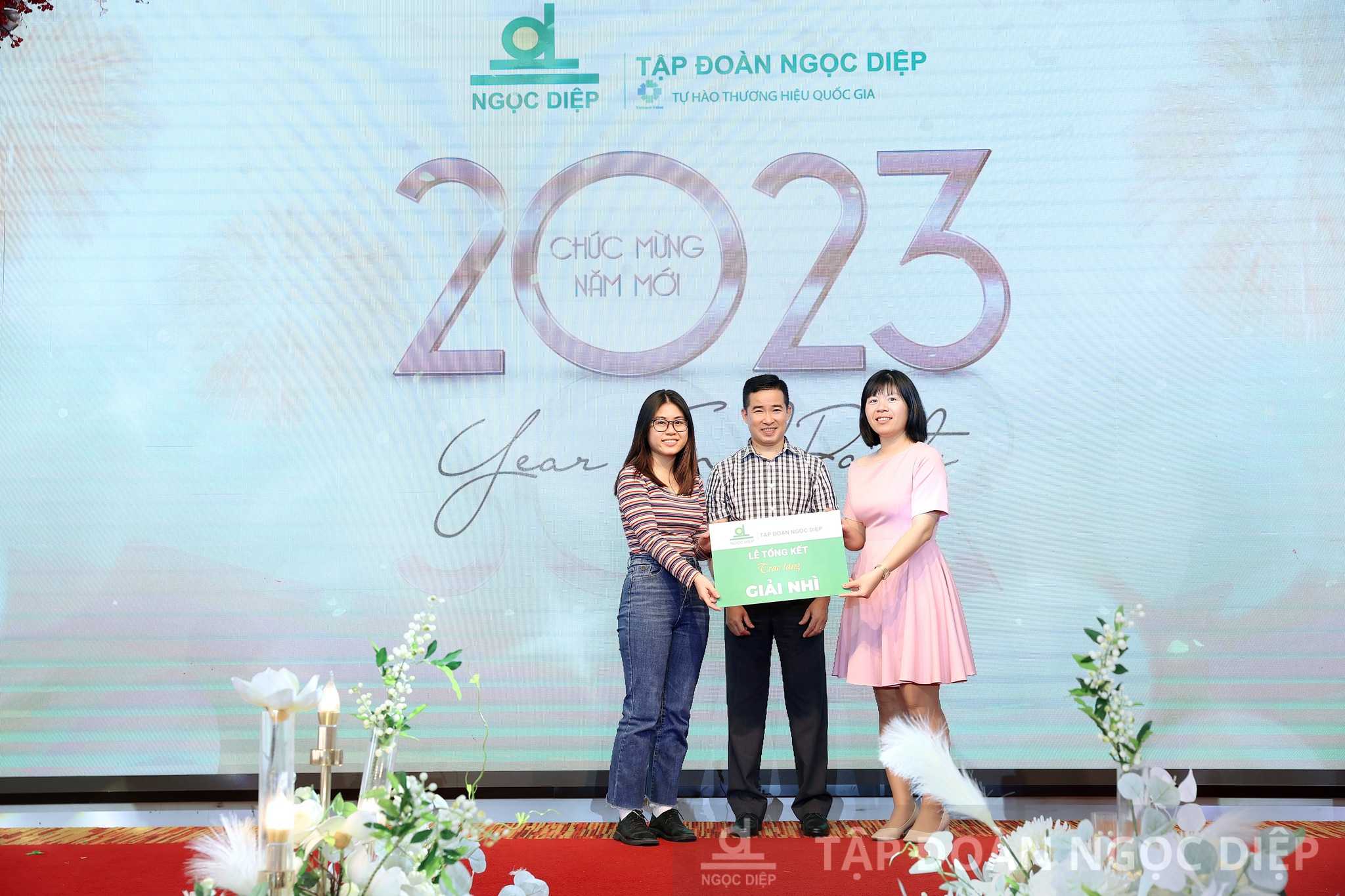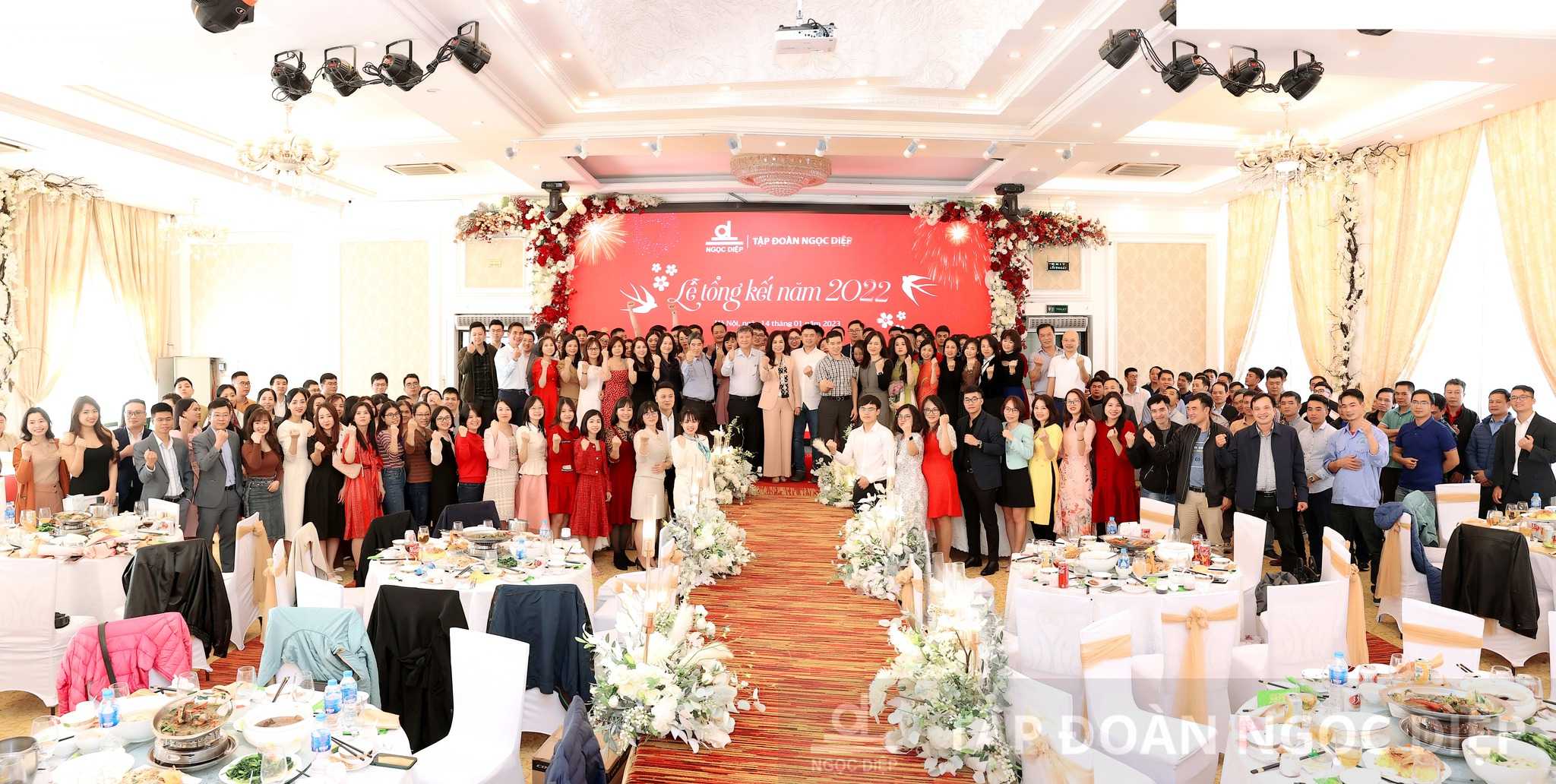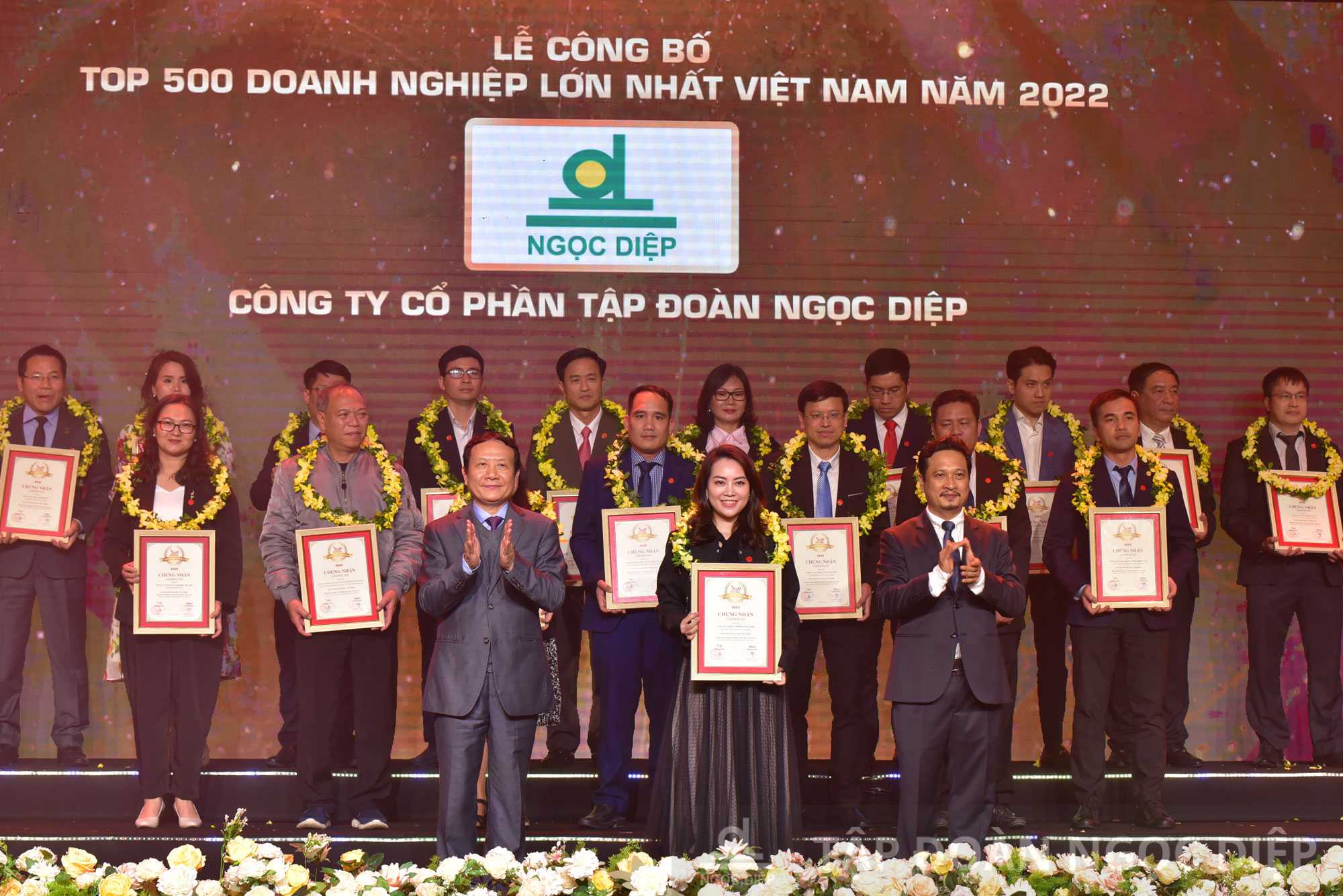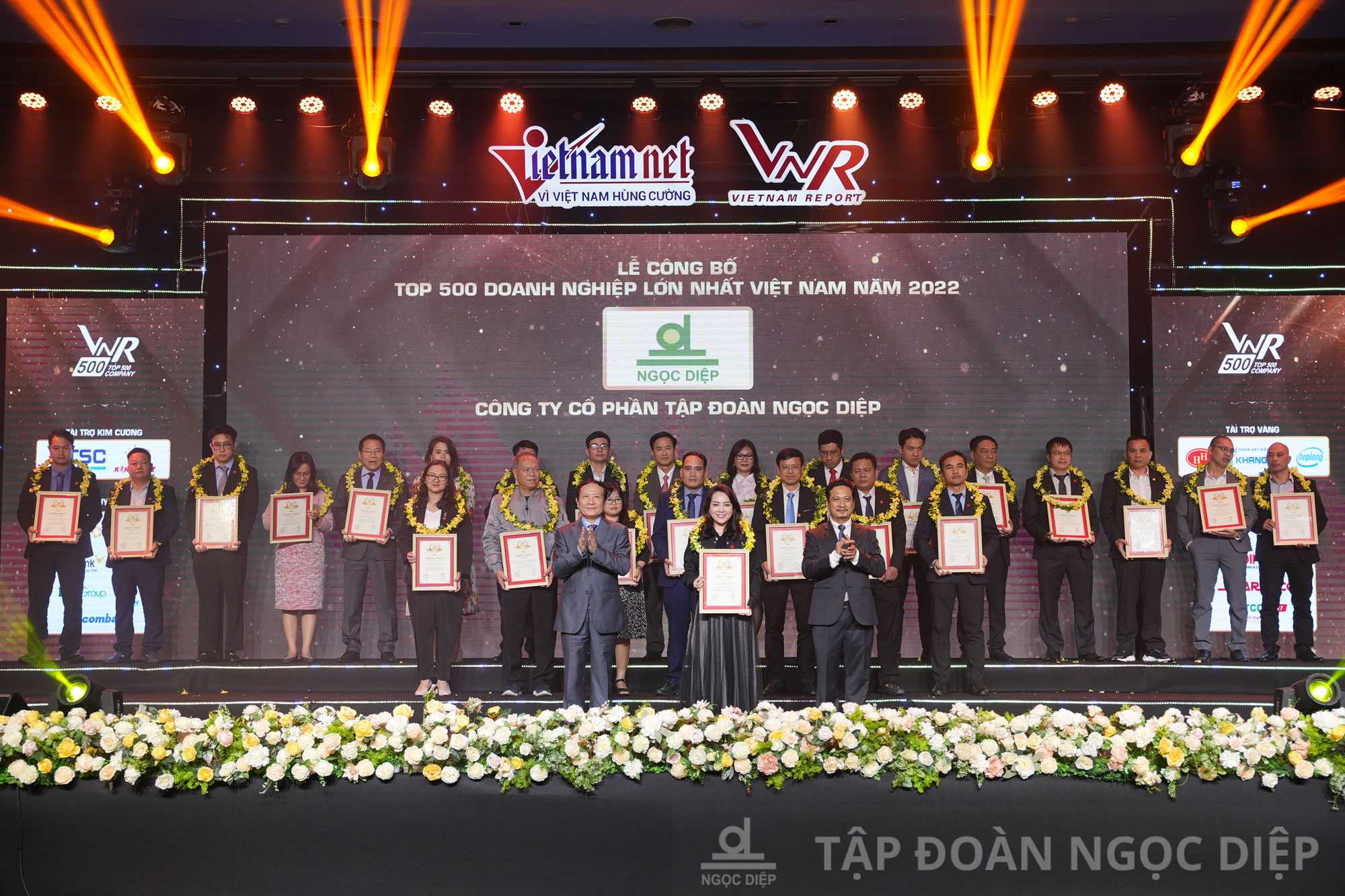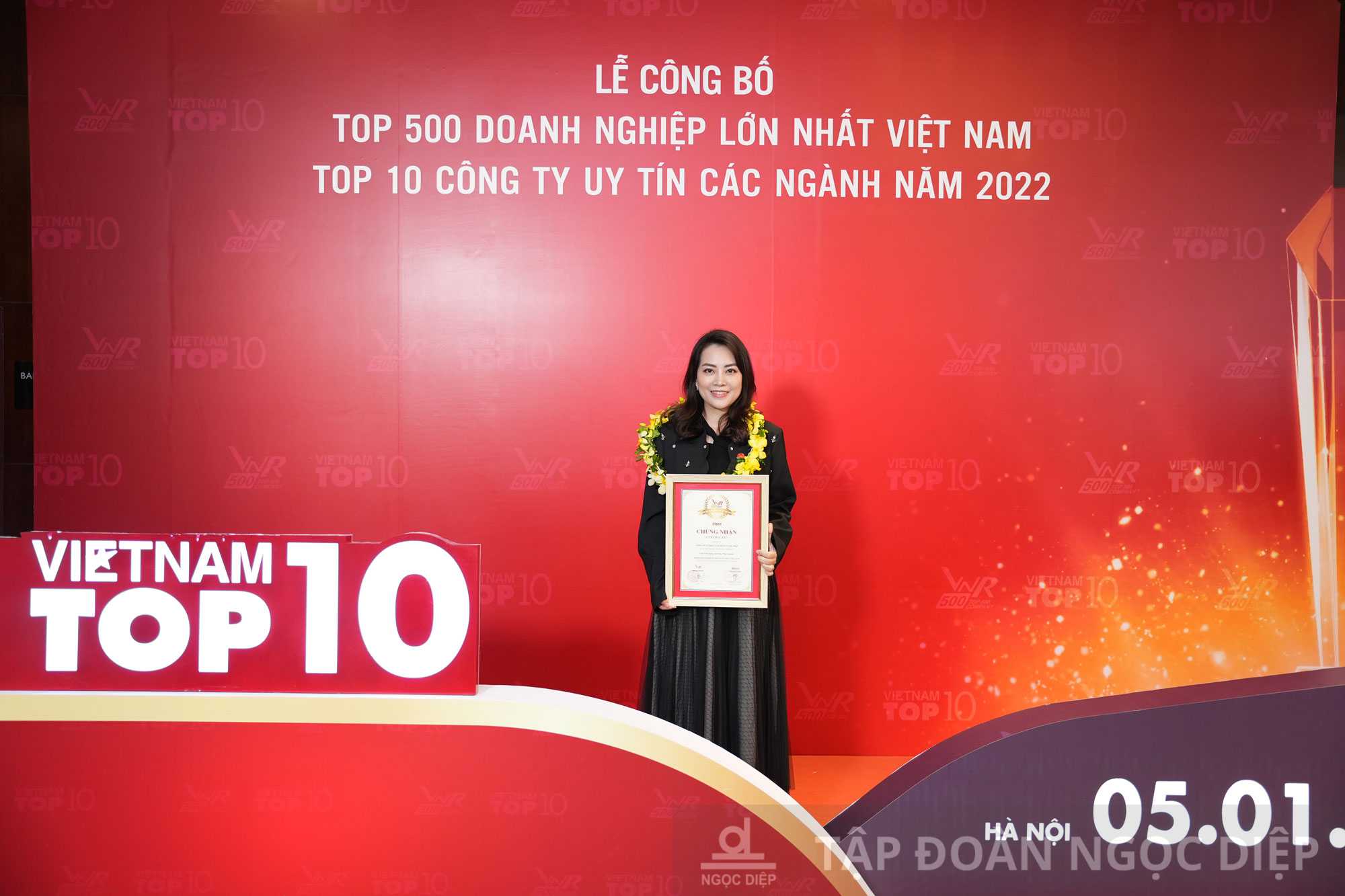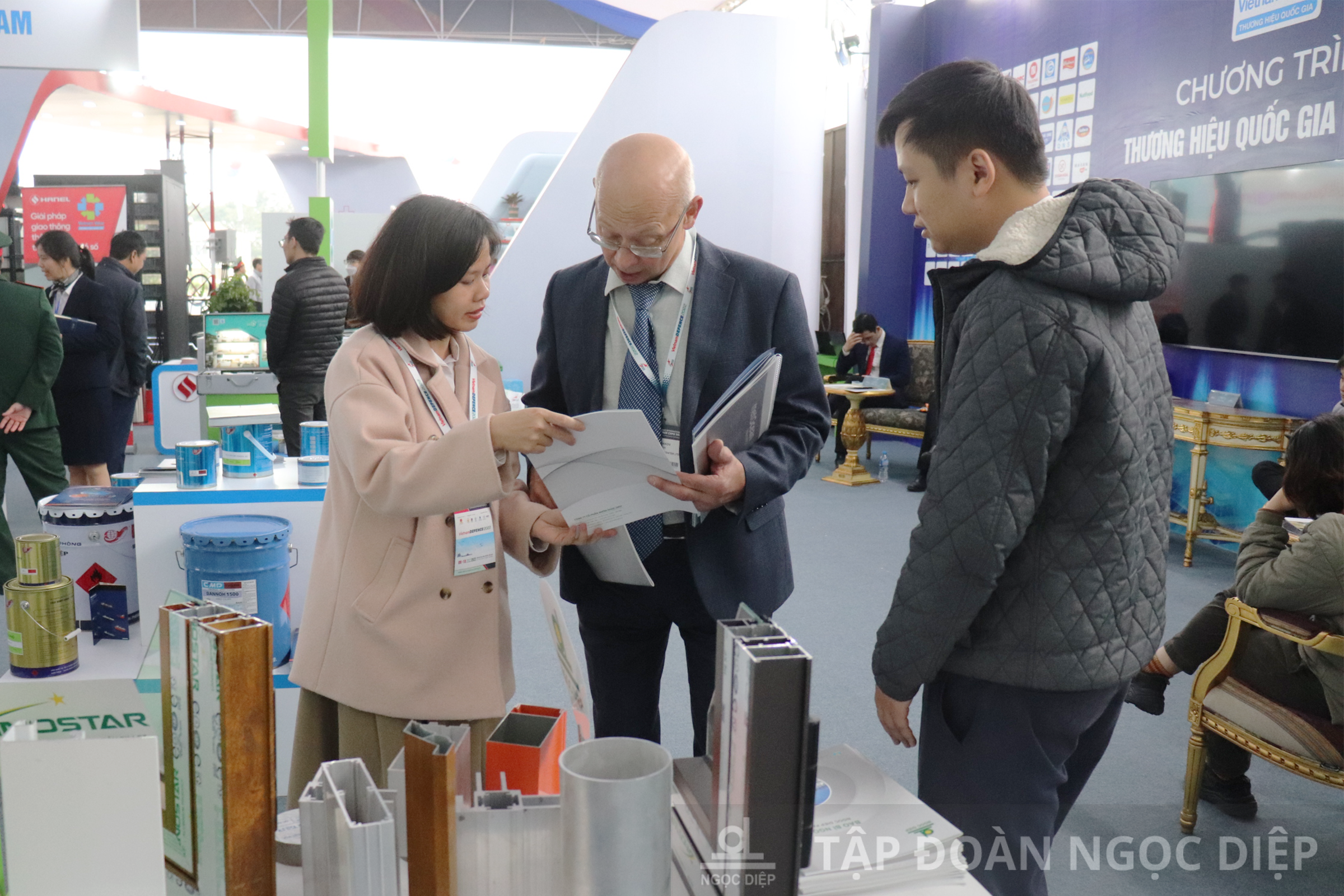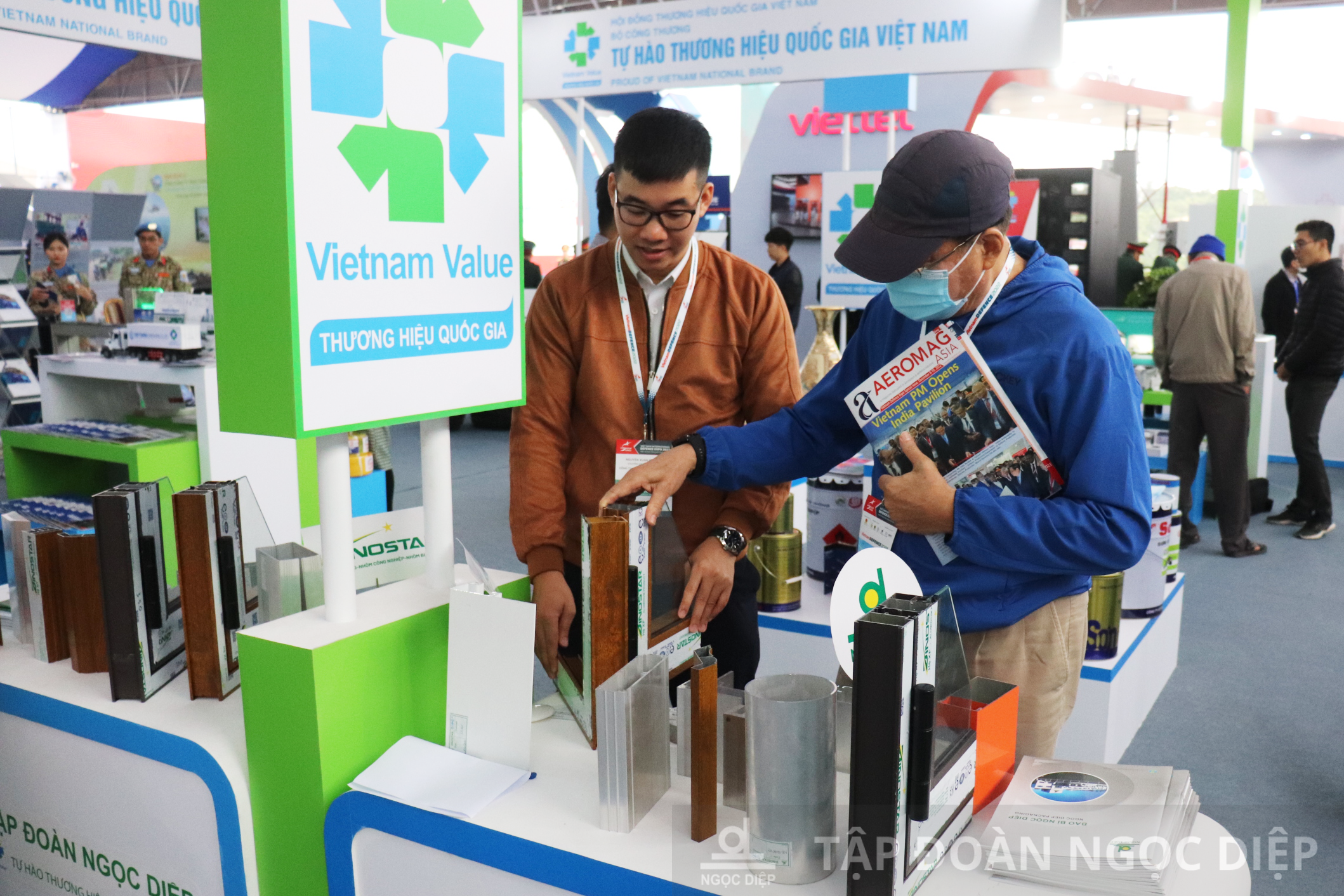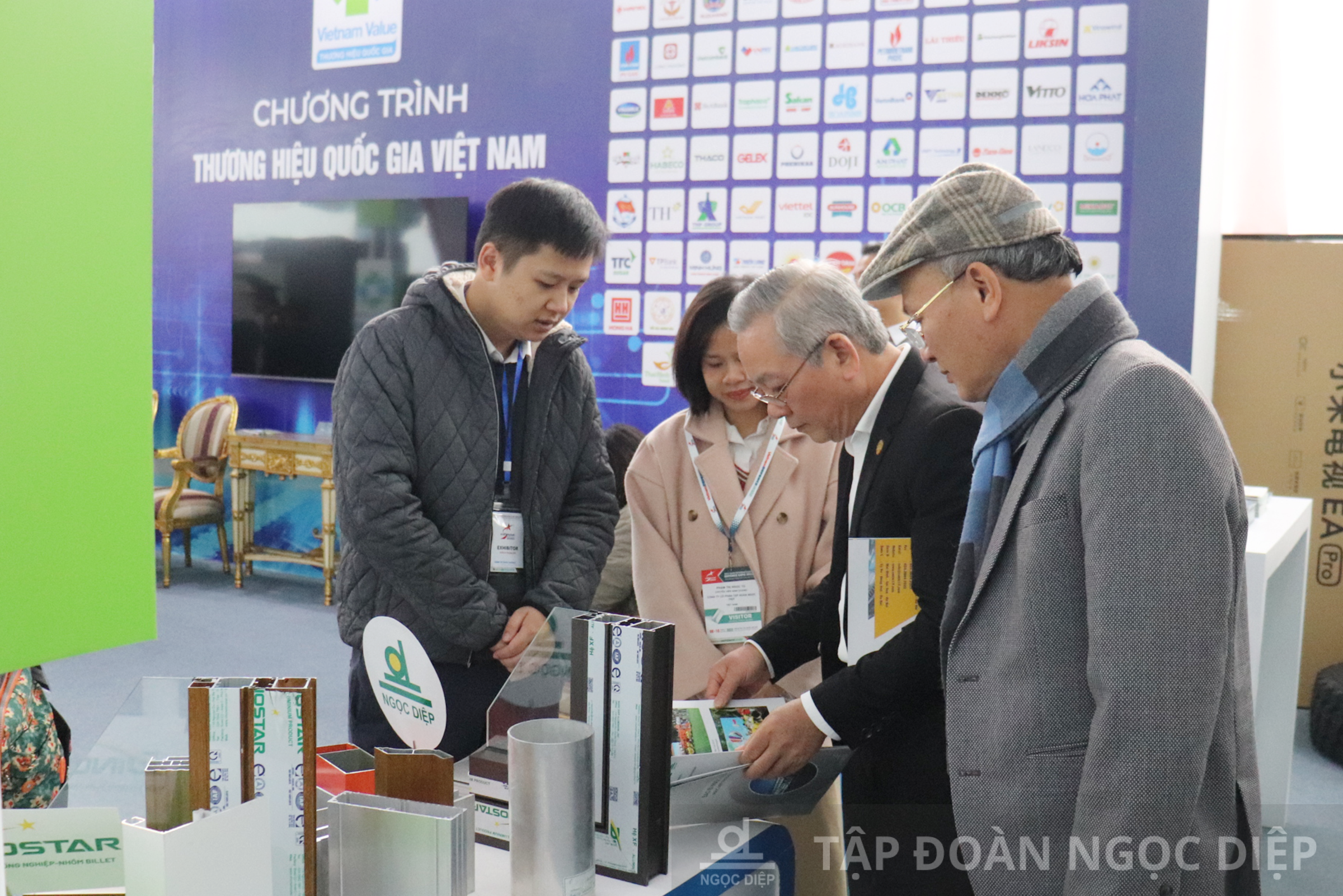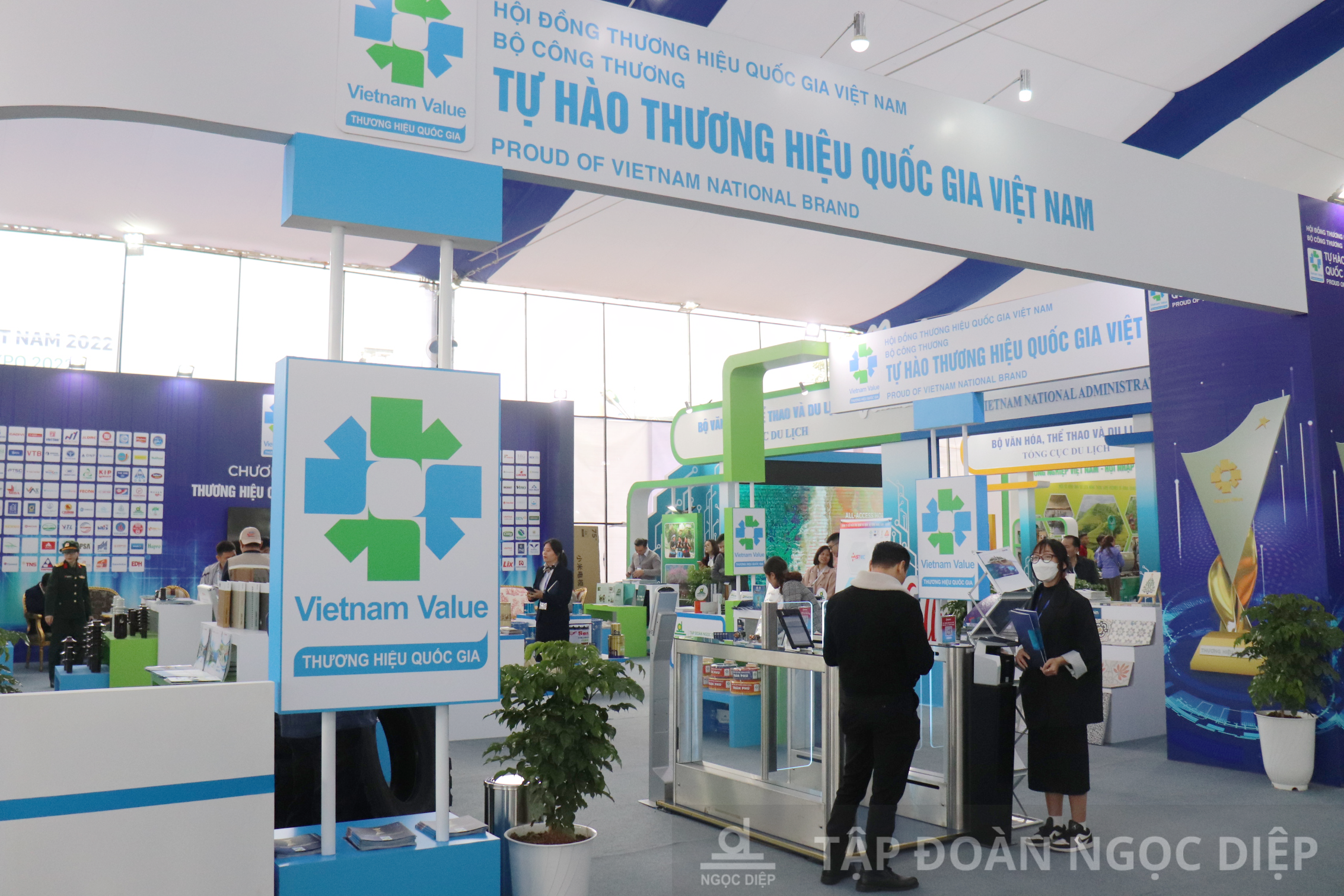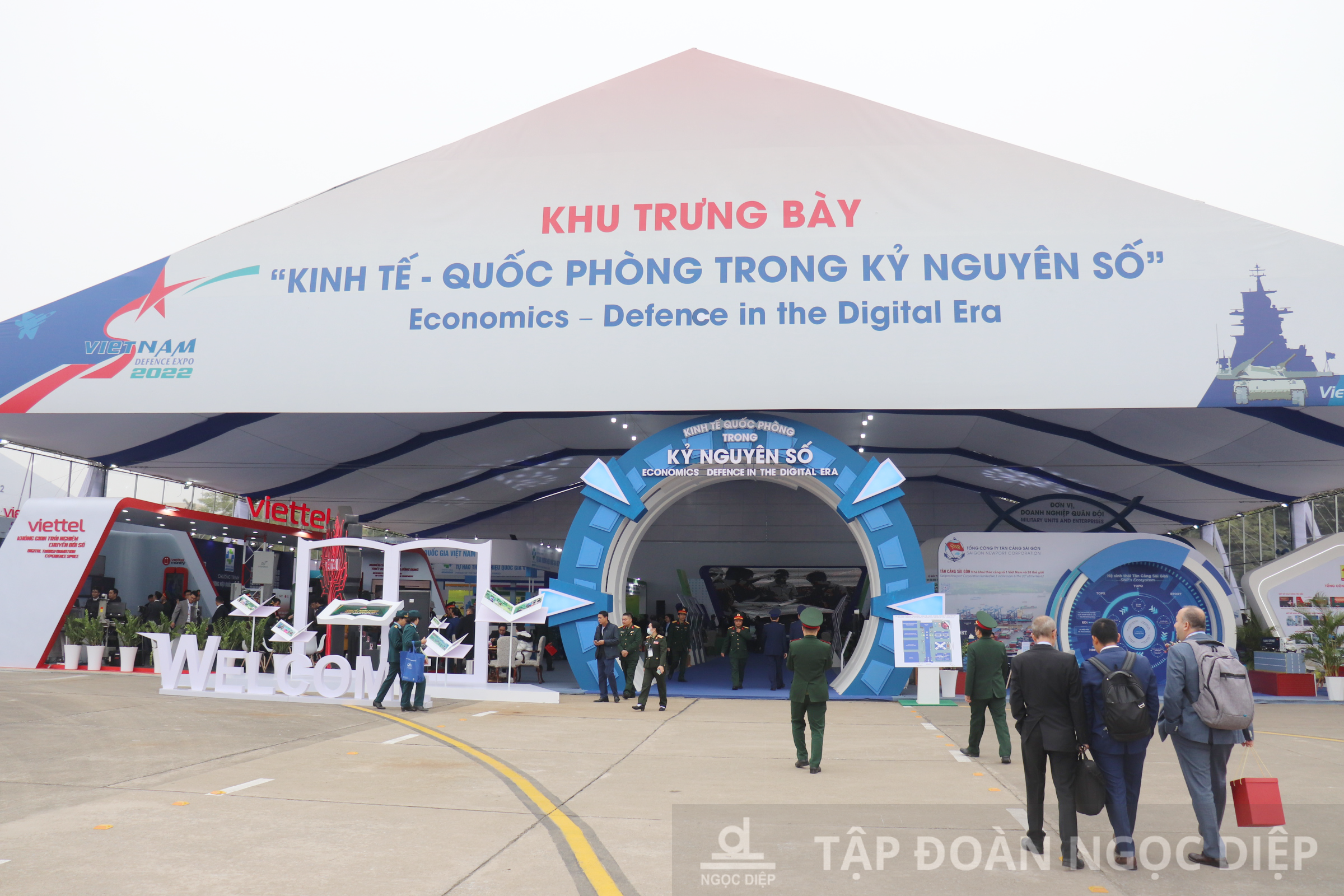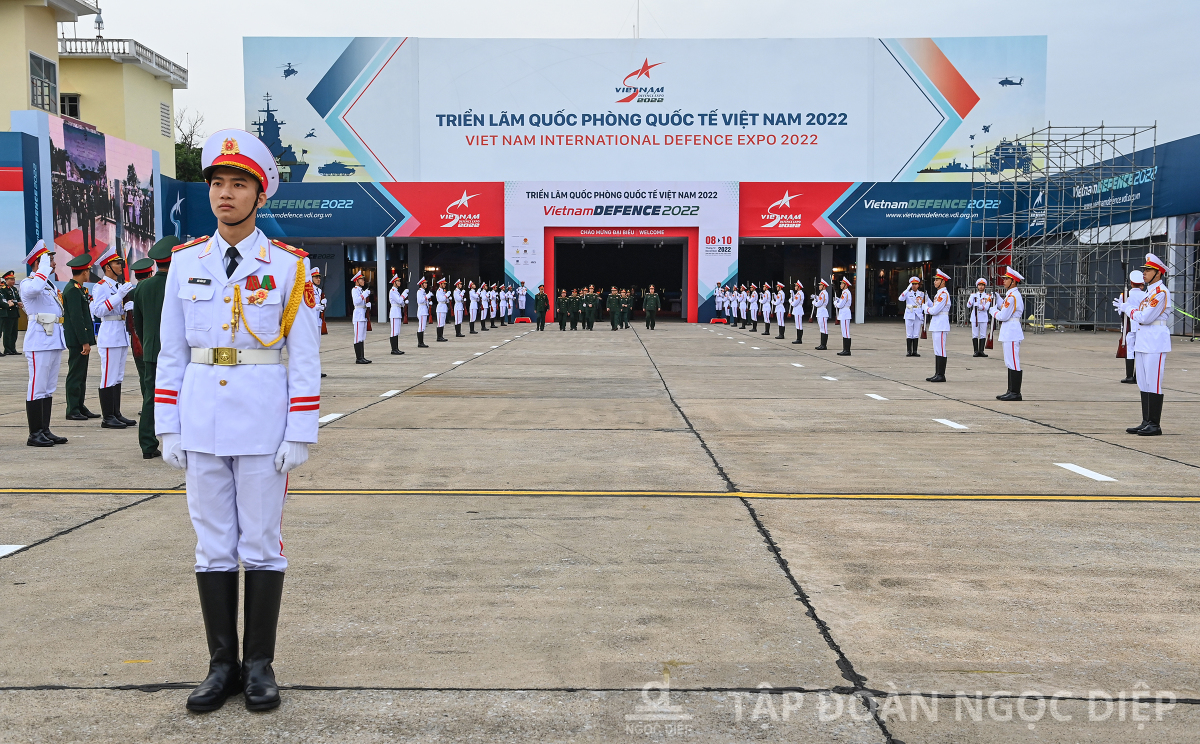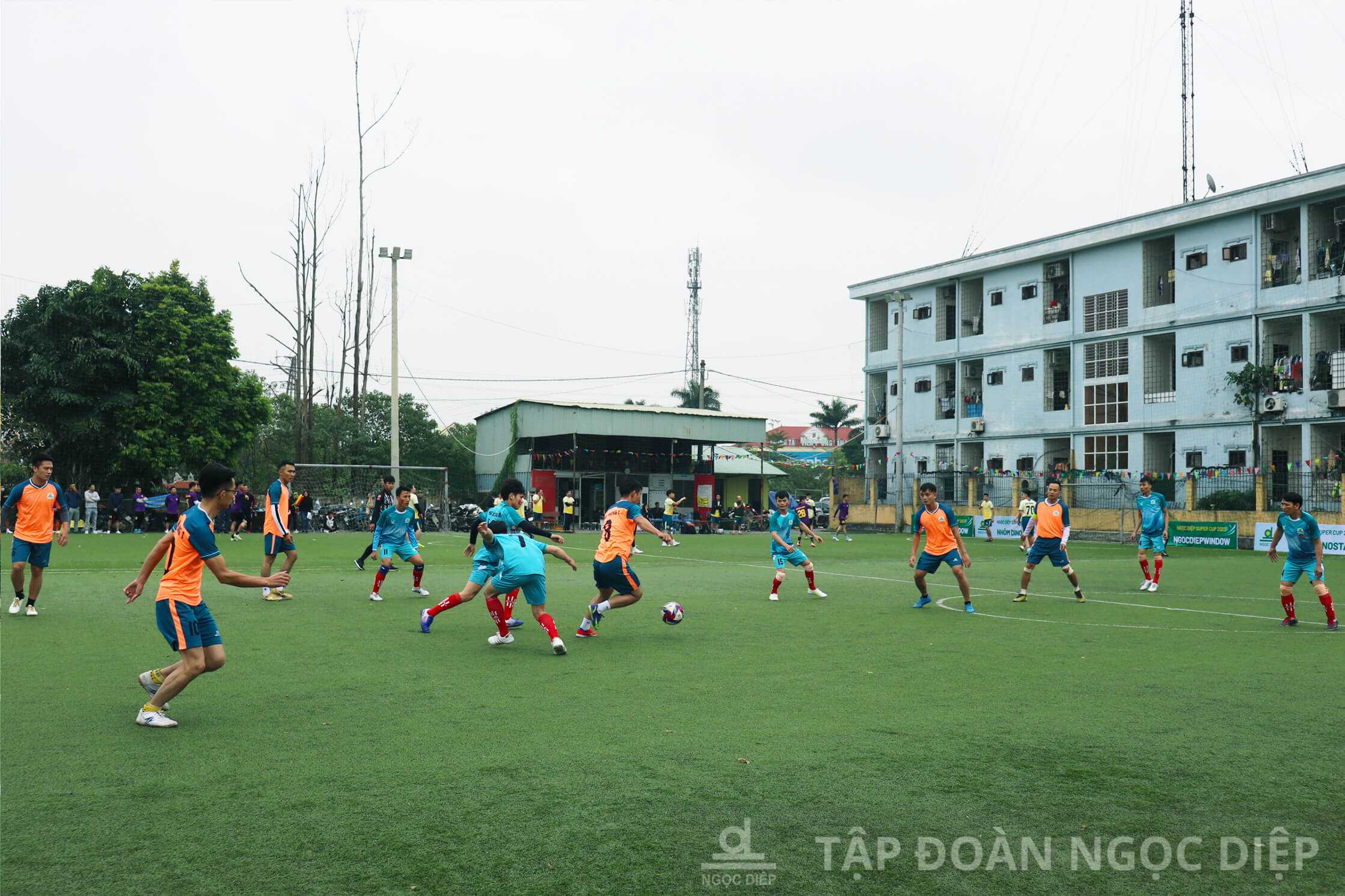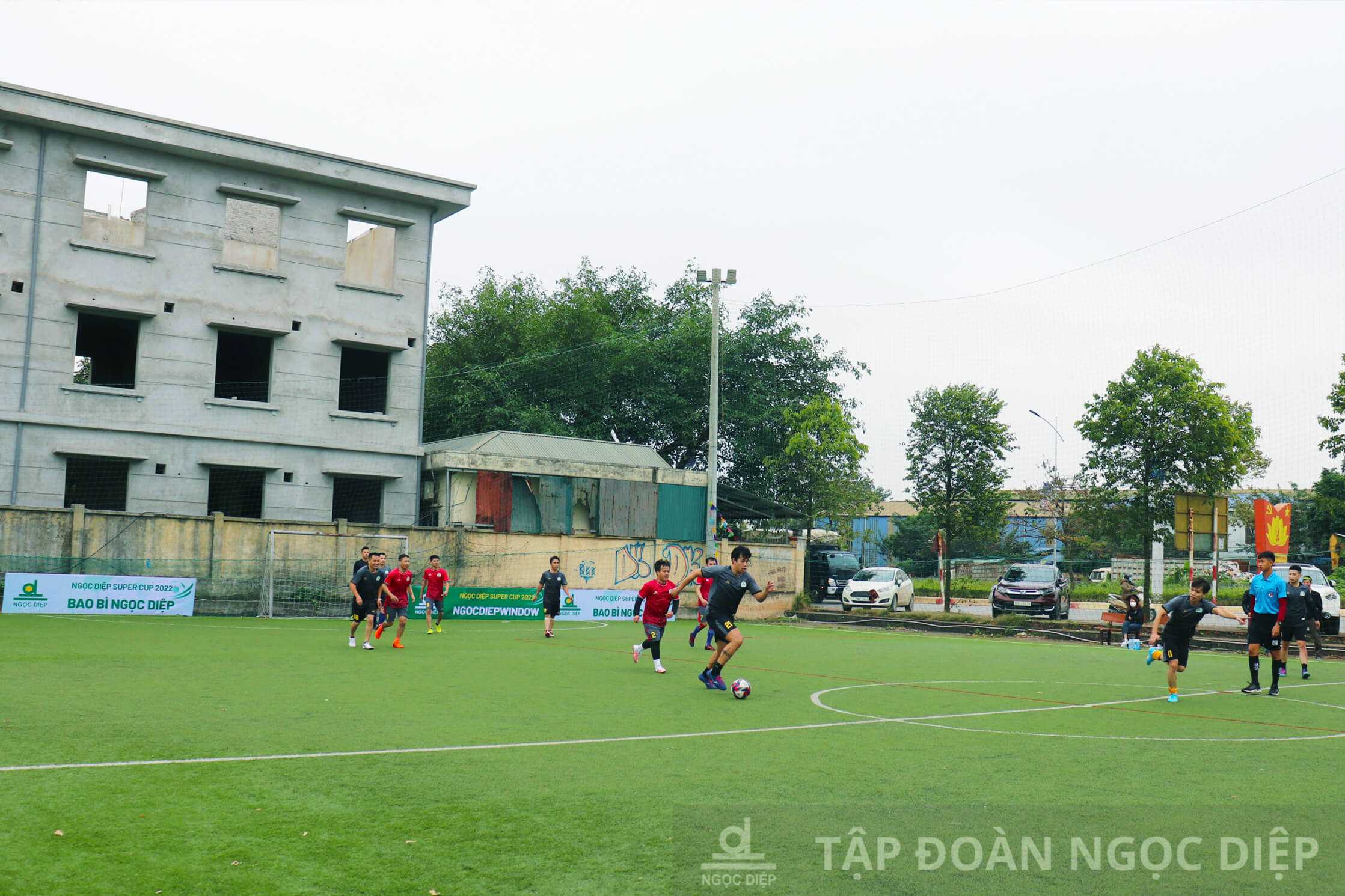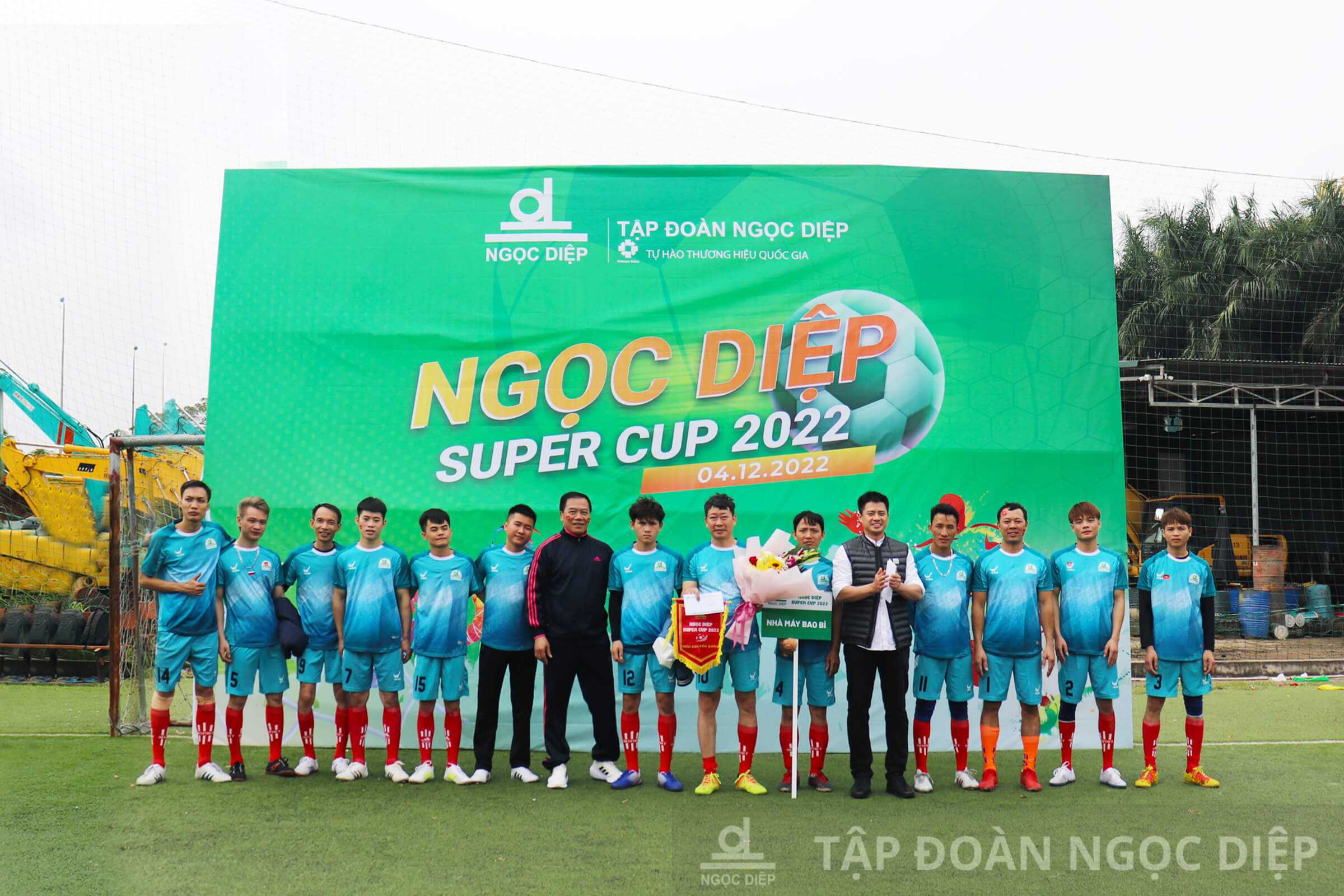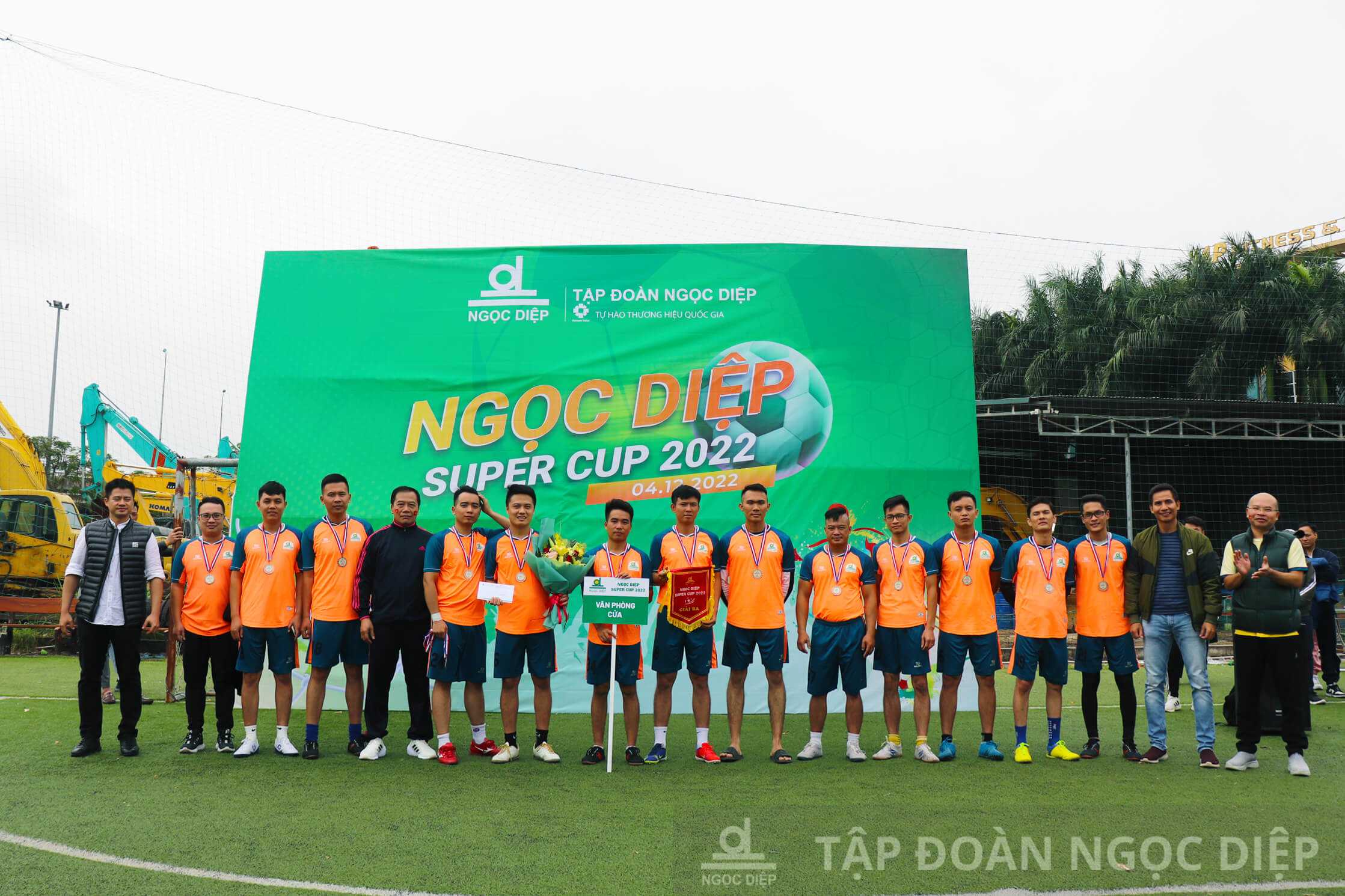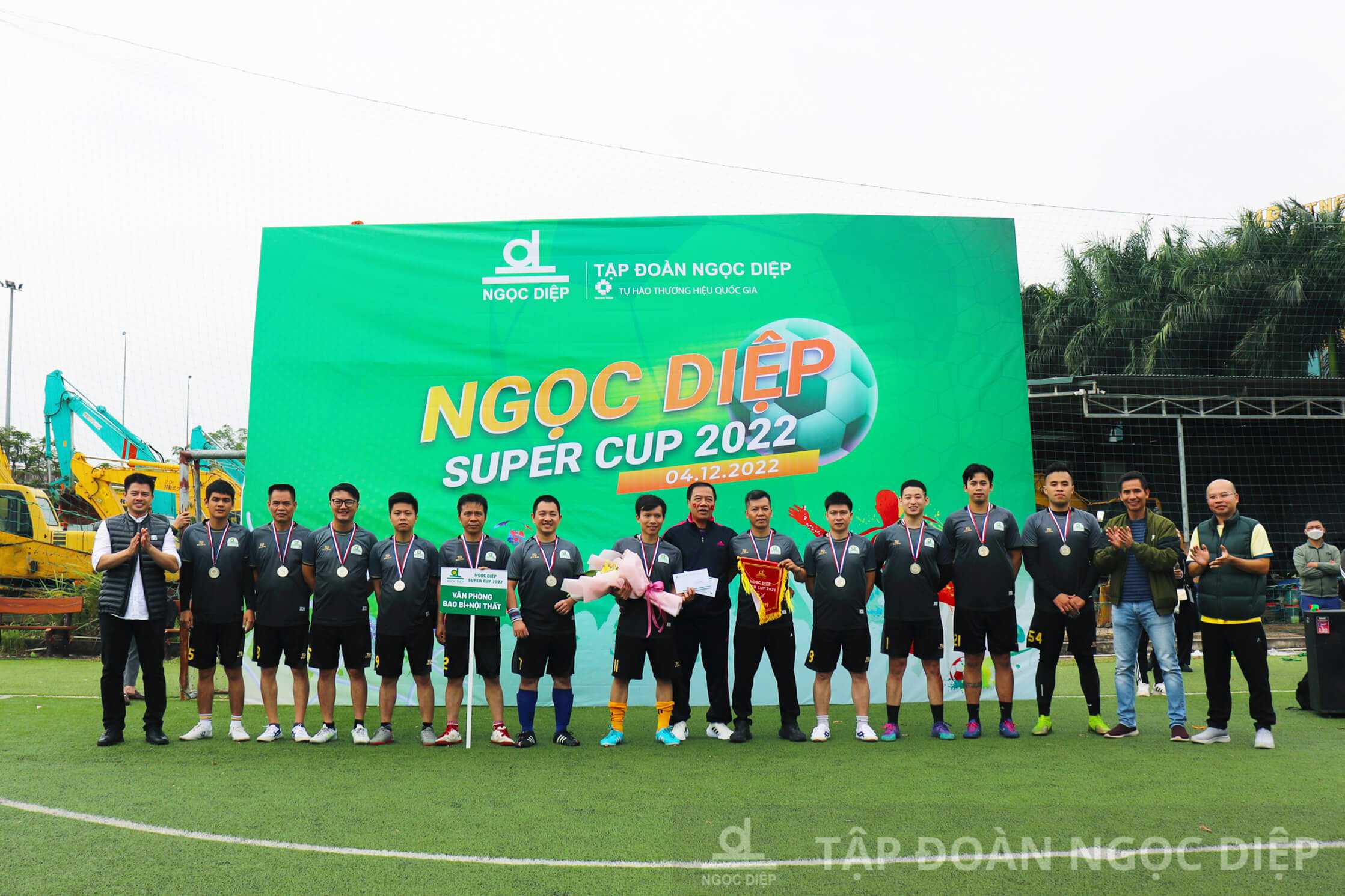Tiếp nối hội nghị tổng kết khối Văn phòng Tập đoàn Ngọc Diệp, ngày 15/01/2023 vừa qua, 3 nhà máy Nhôm – Bao bì – Cửa Ngọc Diệp đã tổ chức thành công Lễ Tổng kết hoạt động sản xuất kinh doanh năm 2022 trong không khí rộn ràng, tươi vui.
Following the meeting to summarize the office block of Ngoc Diep Group, on January 15, 2023, 3 Aluminum – Packaging – Window factories successfully held the Closing Ceremony of production and business activities in 2022. in a lively, cheerful atmosphere.
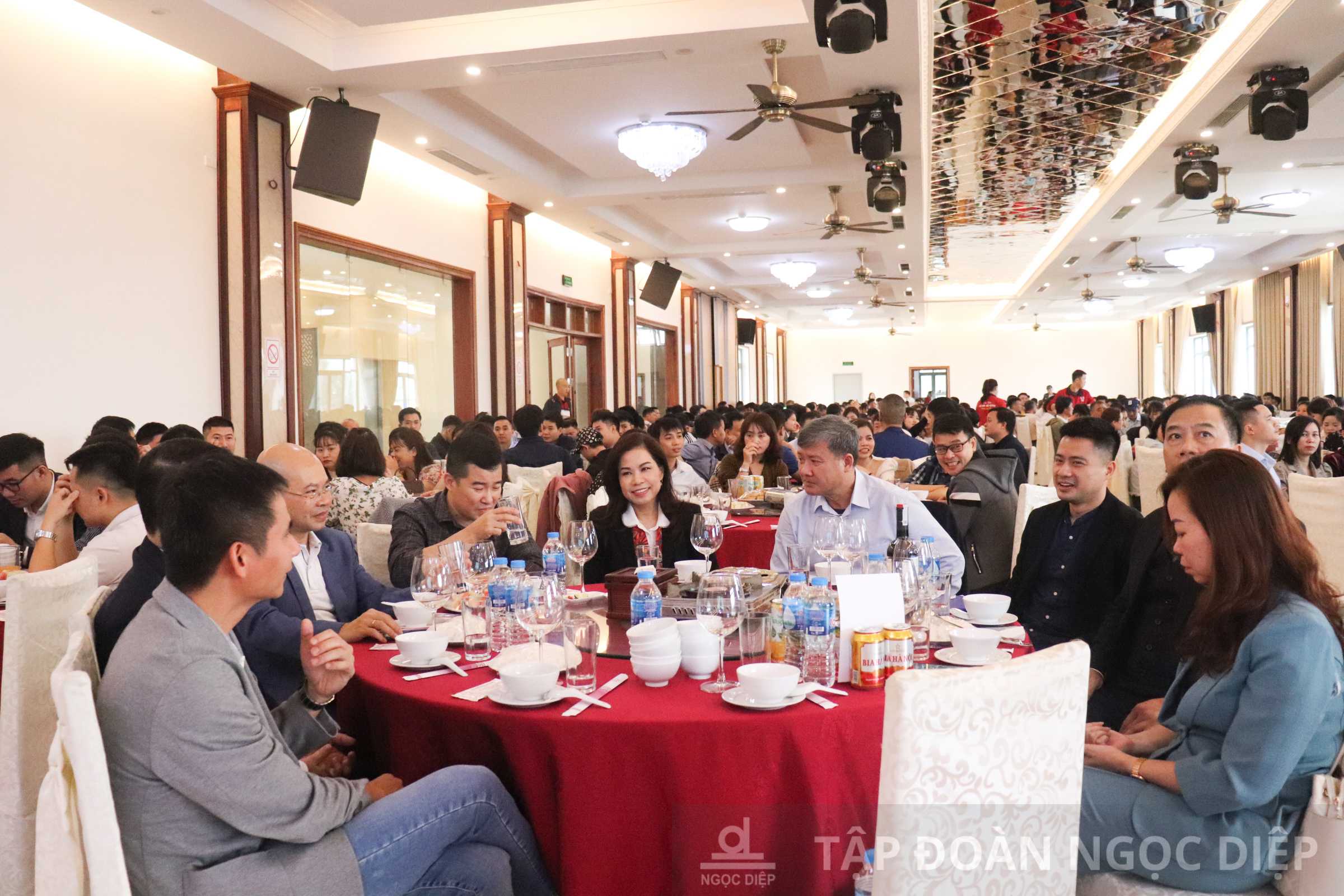
The Board of Directors of Ngoc Diep Group together attended the 2022 Closing Ceremony of the Factory Division
Speaking at the ceremony, representatives of the factories were Mrs. Do Thi Thuong – Director of Ngoc Diep Packaging Factory; Mr. Do Manh Hung – Director of NGOCDIEPWINDOW Factory and Mr. Tran Thanh Long – Director of Ngoc Diep Aluminum Factory had a conference report summarizing the production and business results of each factory in 2022. Through the speech, all employees had the opportunity to look back on the achievements in 2022 as well as grasp the outstanding issues of the old year.
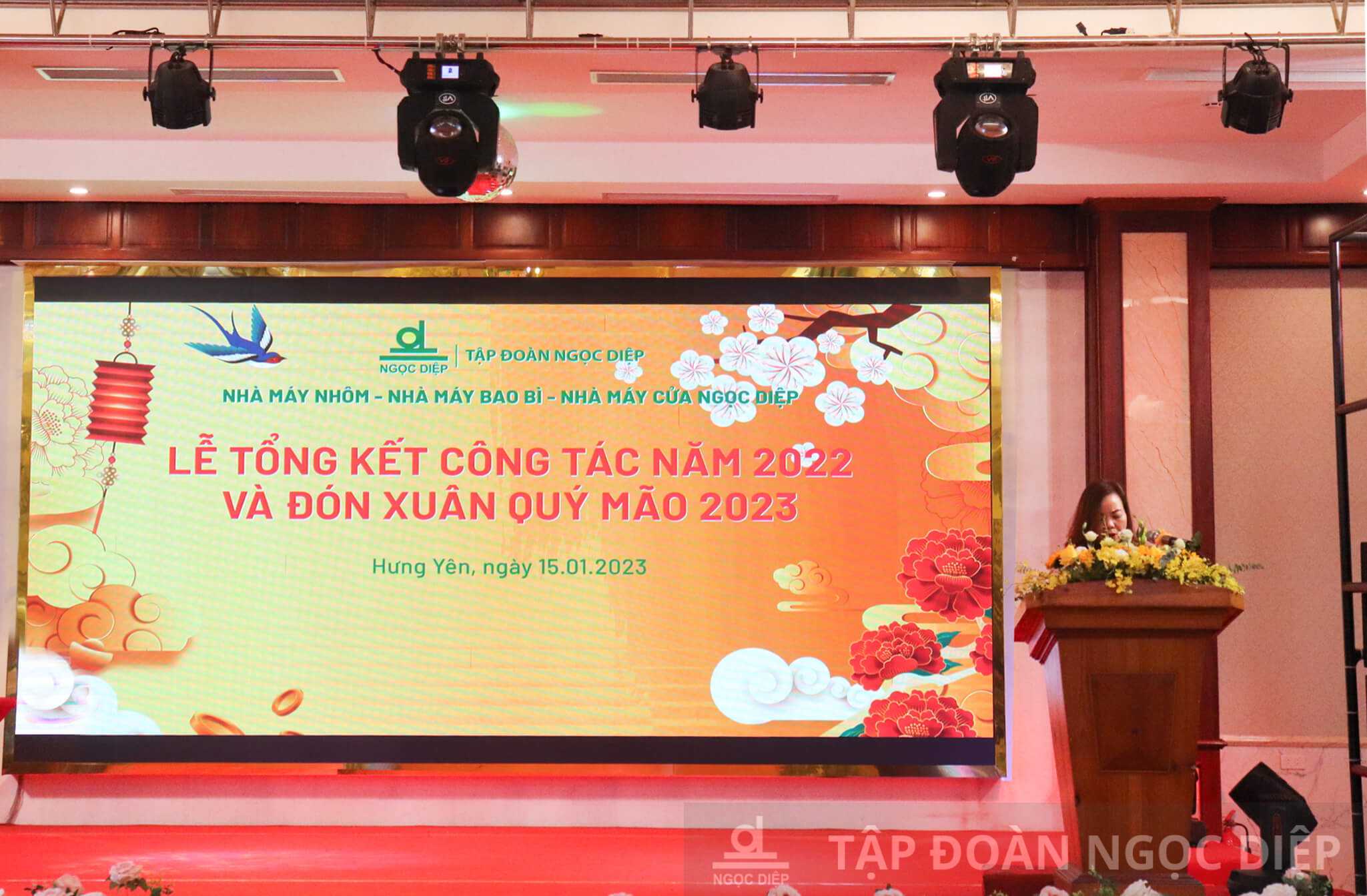
Mrs. Do Thi Thuong – Director of Ngoc Diep Packaging Factory reported the summary of 2022

Mr. Do Manh Hung – Director of Cua Ngoc Diep factory reported the summary of 2022
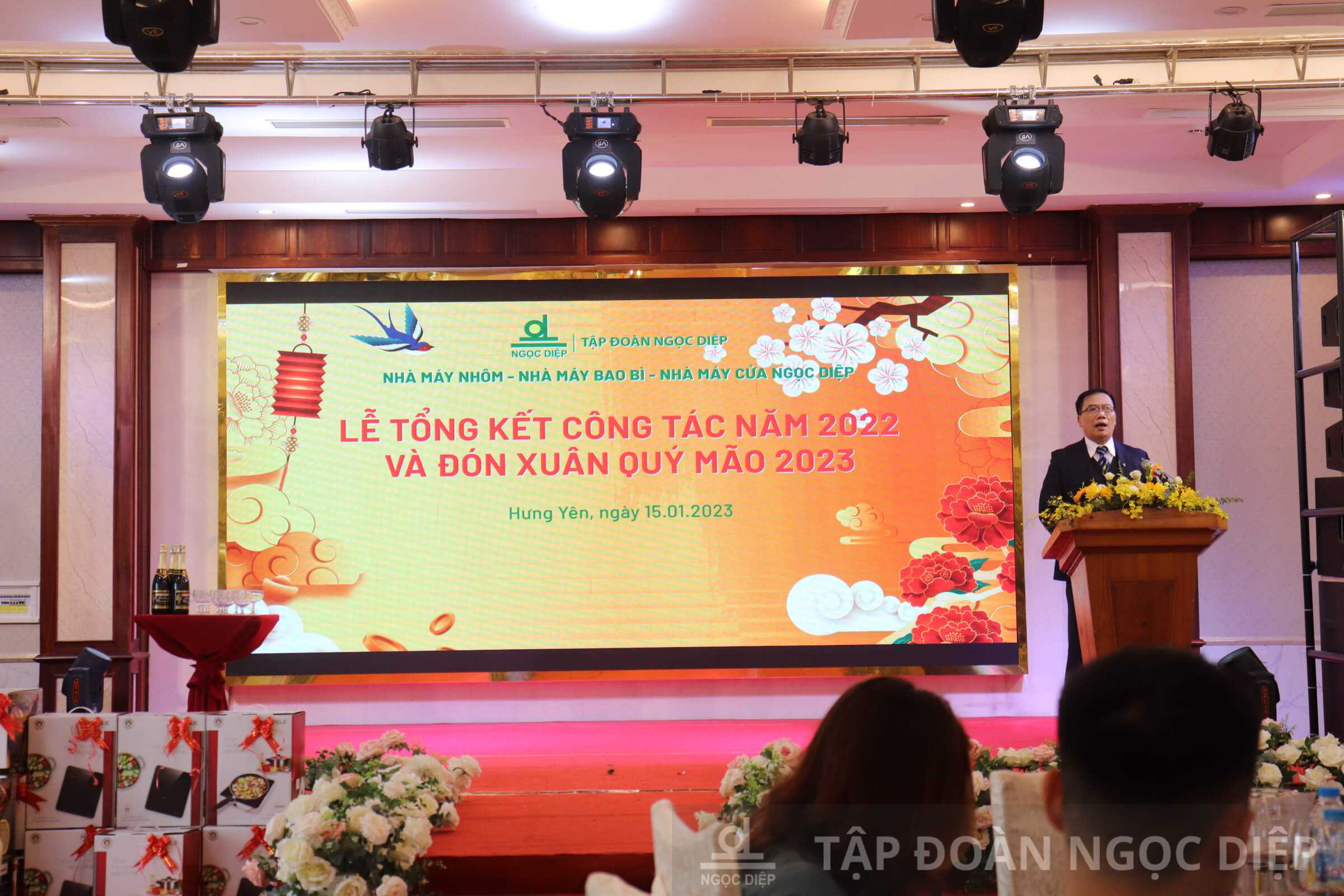
Mr. Tran Thanh Long – Director of Ngoc Diep Aluminum Factory reported the summary of 2022
On behalf of the Group’s Board of Directors, Mrs. Tran Thi Thu Diep – Chairman of the Board of Directors of Ngoc Diep Group expressed her gratitude to the efforts and dedication of the employees of 3 factories in the production and business activities of the Company. and set out directions and tasks in 2023.
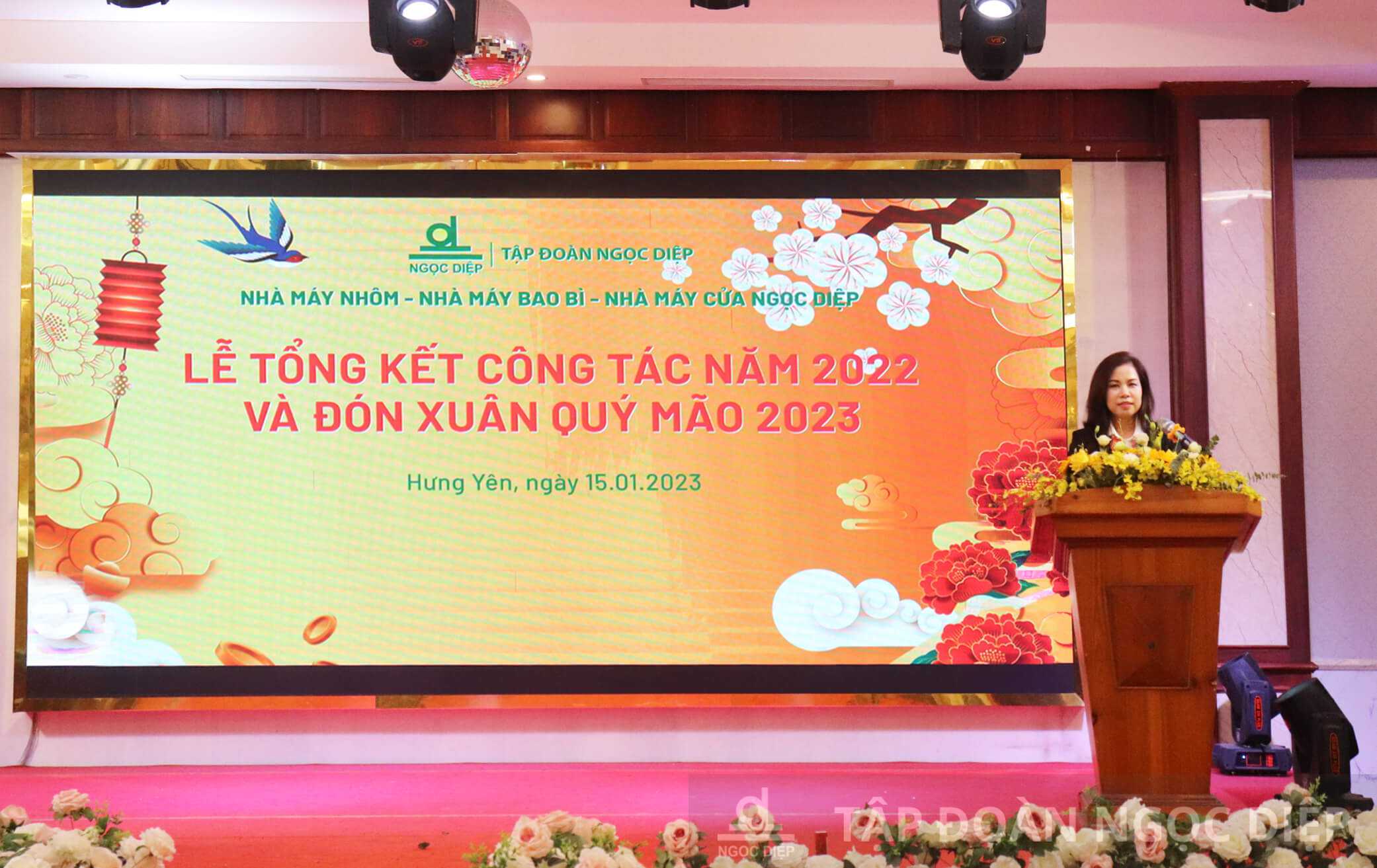
Mrs. Tran Thi Thu Diep – Chairman of the Board of Directors of Ngoc Diep Group spoke at the ceremony
Also in the ceremony, advanced and excellent individuals in the factory block in 2022 were honored and received meaningful rewards by the leaders of the factories. This will be a strong motivation for employees to continue their efforts and contribute more to the overall development of the Company.

Mrs. Do Thi Thuong awarded certificates of merit and rewards to the advanced employees of Ngoc Diep Packaging factory
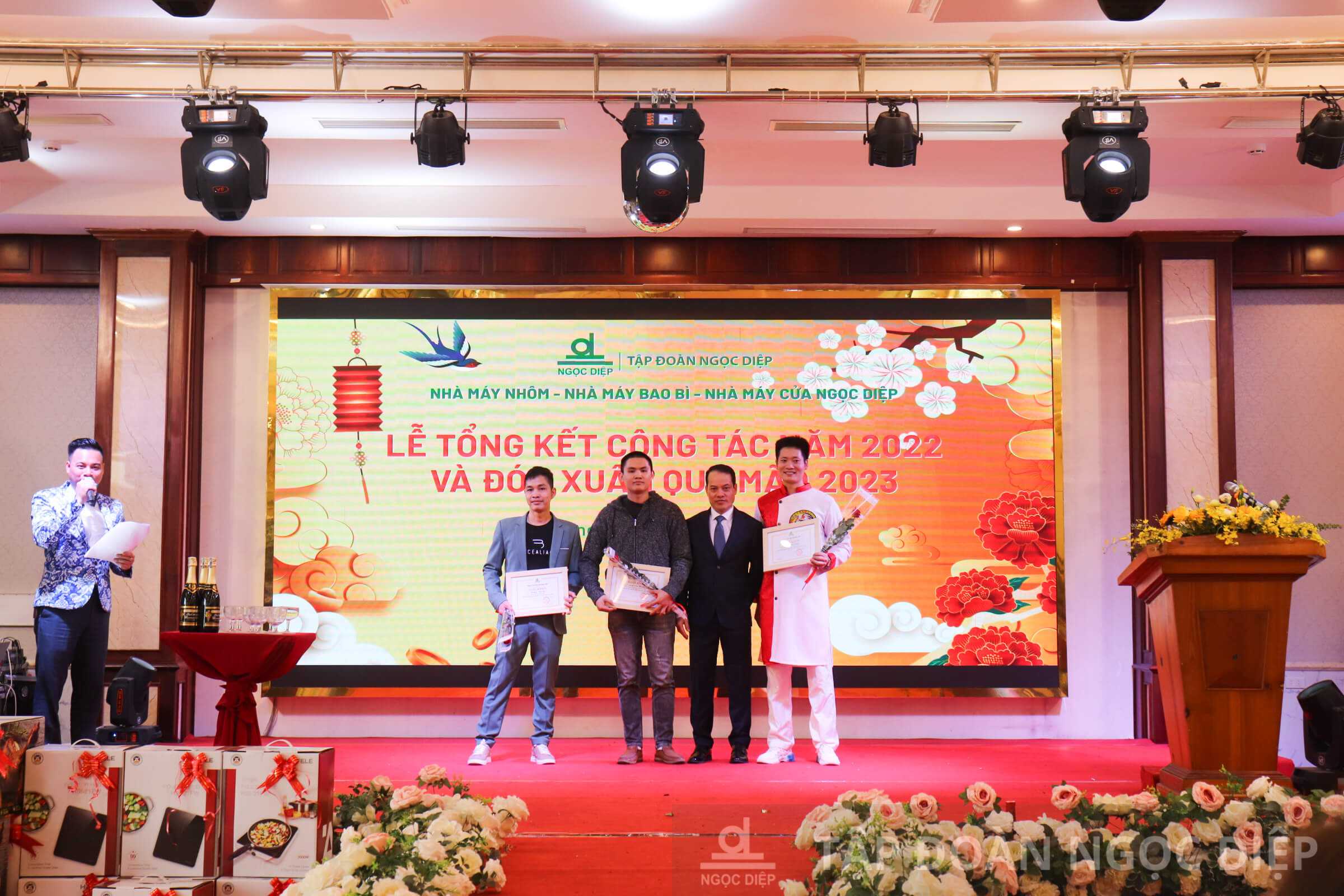
Mr. Do Manh Hung awarded certificates of merit and rewards to the advanced employees of NGOCDIEPWINDOW factory

Mr. Tran Thanh Long awarded certificates of merit and rewards to the advanced employees of Ngoc Diep Aluminum Factory
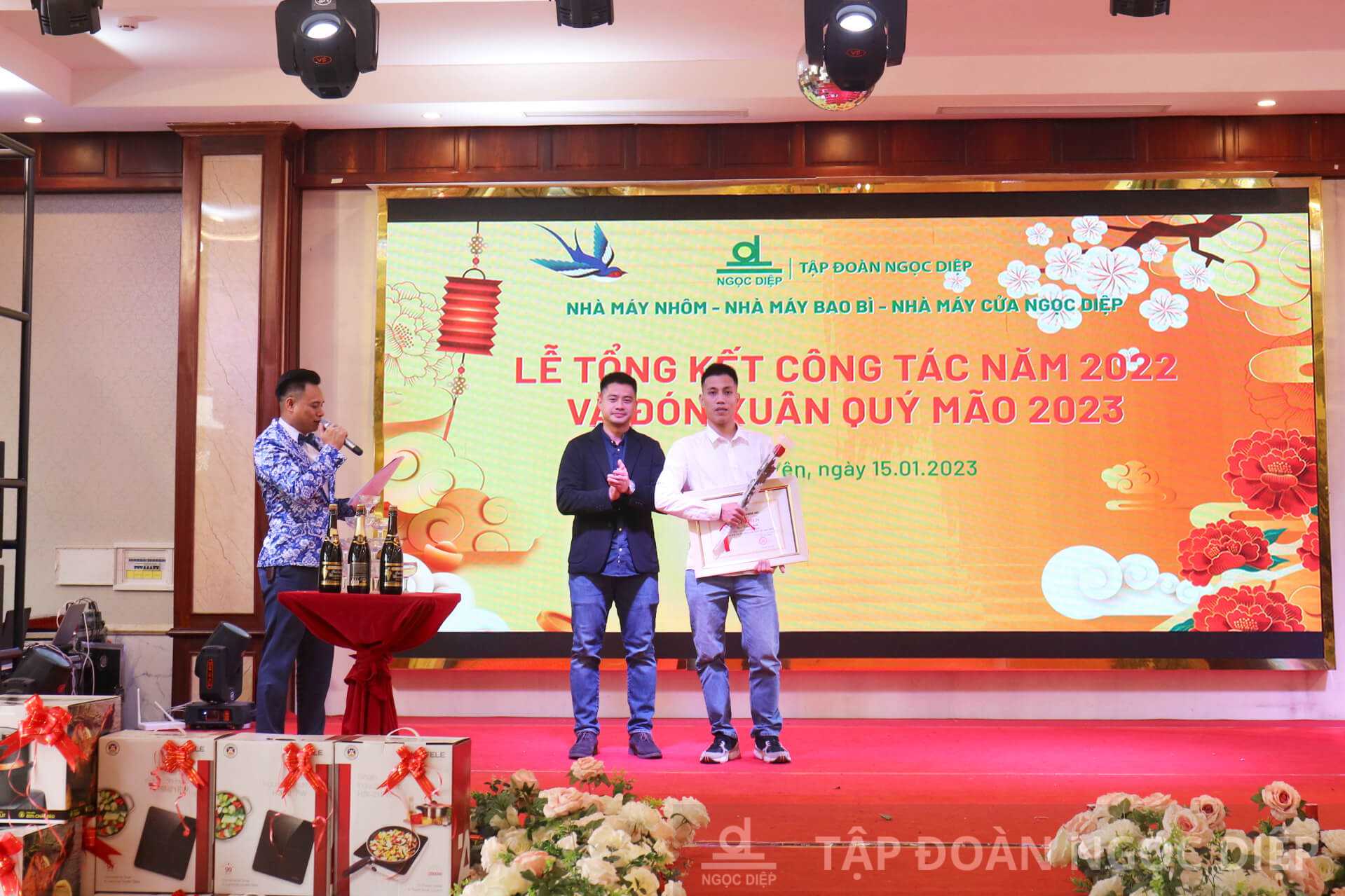
Mr. Bui Ngoc Duc – Production Director of Ngoc Diep Aluminum Joint Stock Company awarded certificates of merit and rewards to excellent employees of Ngoc Diep Packaging factory – Mr. Bui Van Anh
In addition to the reward activities, the annual program “Lucky draw” was also held in a joyful and eager atmosphere with many valuable gifts being given to the lucky winners.

Consolation prizes
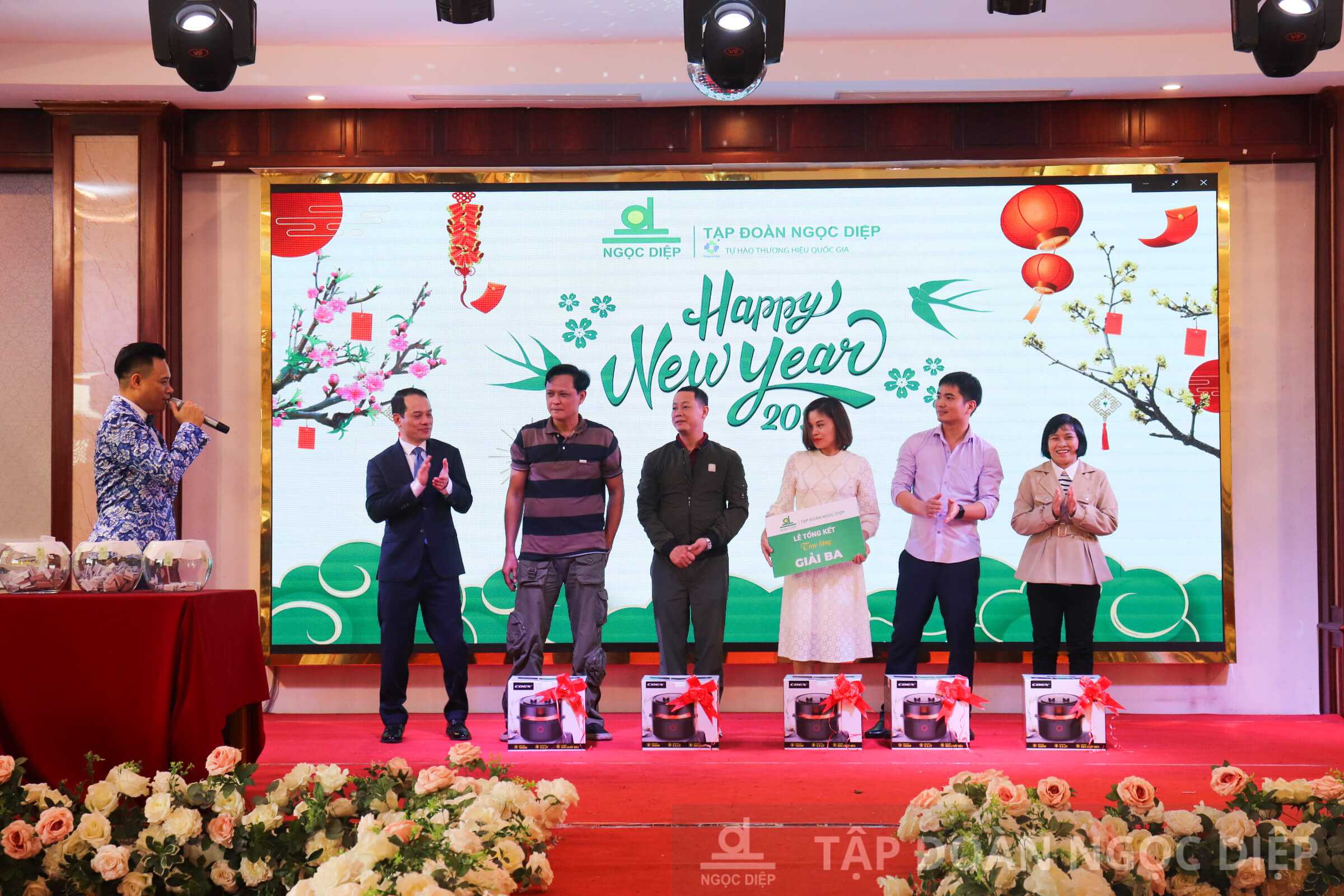
The third prize
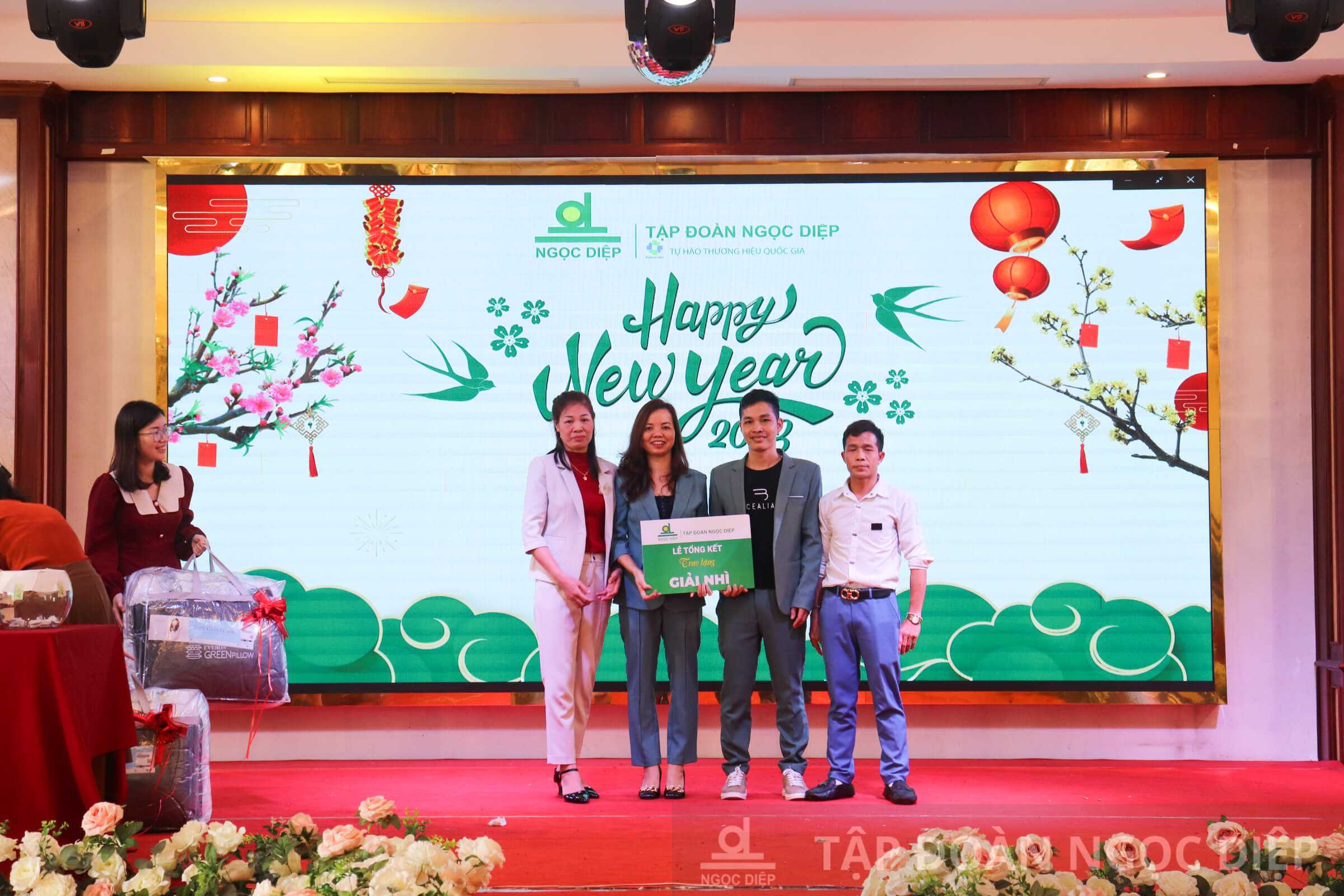
The second prize

First prize
The Closing Ceremony is not only an opportunity to look back on the past year, but also an opportunity for all employees to meet, reunite, tighten solidarity and strive together to conquer new achievements. Wishing all employees of Ngoc Diep Group a happy and prosperous new year full of new victories!
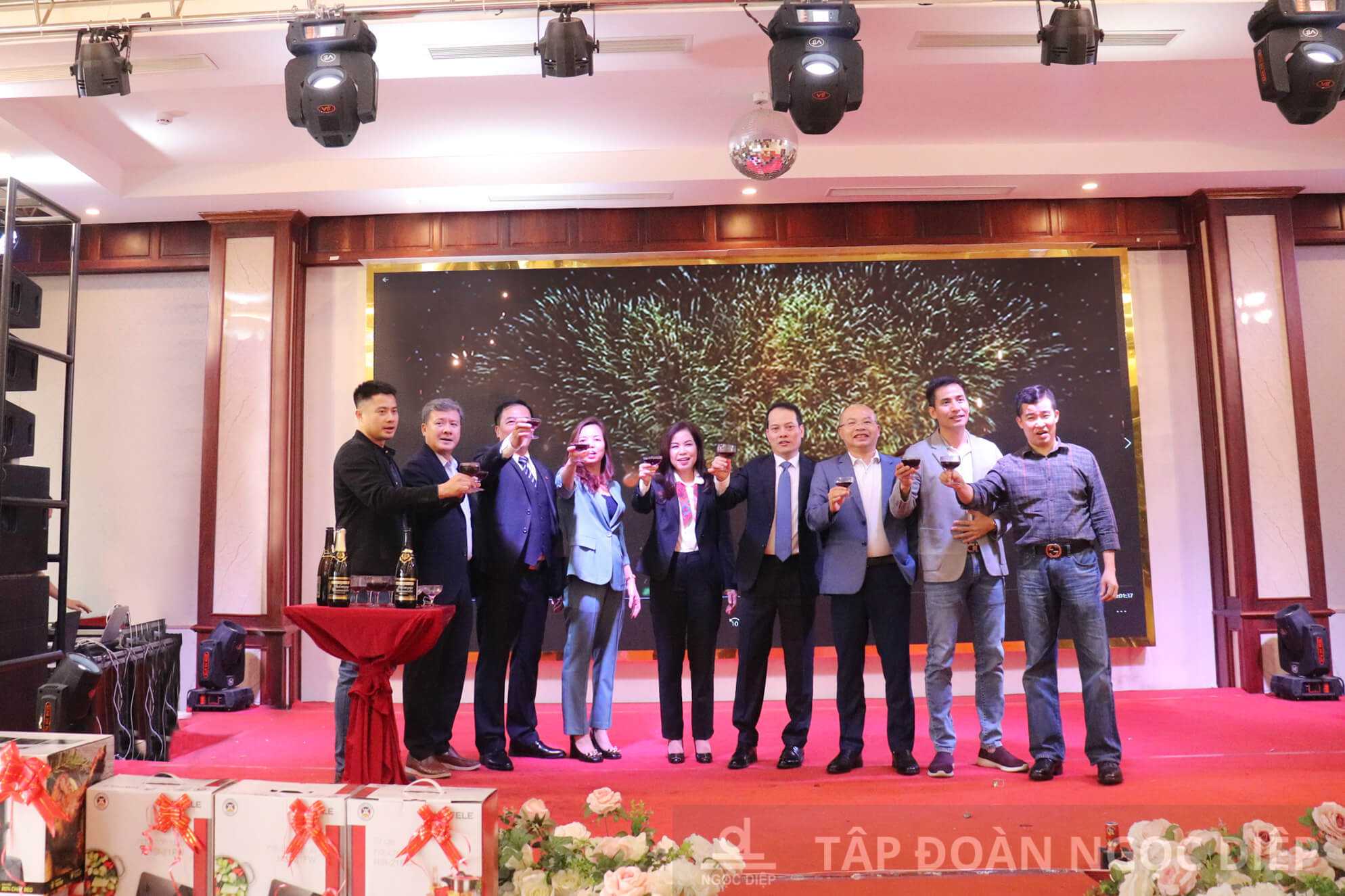
The Group’s Board of Directors and Factory Directors toast to the New Year

————————–
NGOC DIEP GROUP
THE PINNACLE OF QUALITY – CREATING THE FUTURE
Headquarters: 35 Hai Ba Trung Street – Hoan Kiem District – Ha Noi city
Tel: (+84) 24 3942 2828 – Fax: (+84) 24 3942 7840
Factory: Pho Noi A Industrial – Van Lam District – Hung Yen Province
Website: https://ngocdiep.vn/

